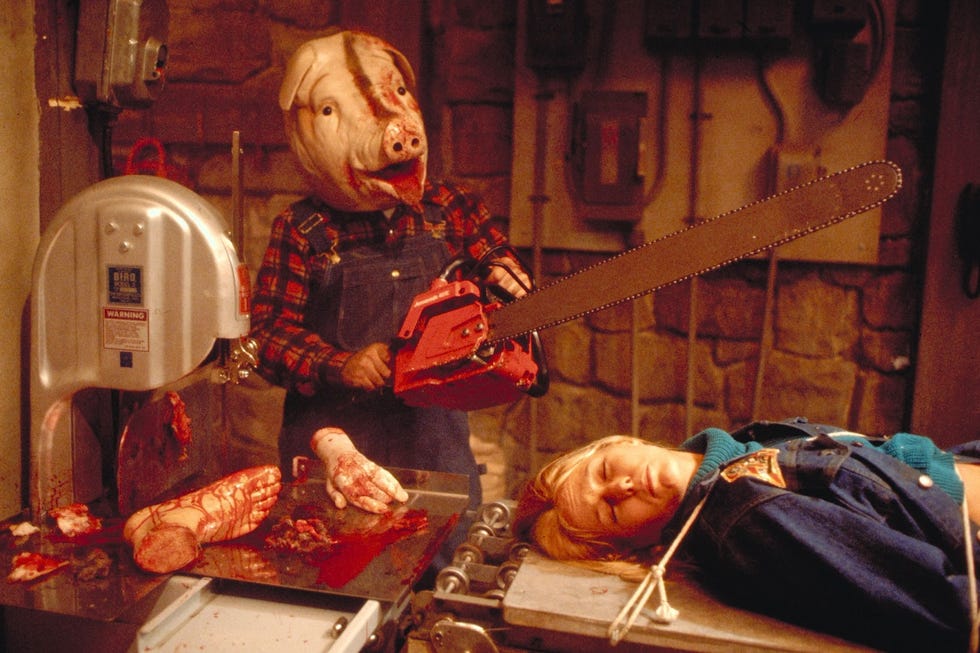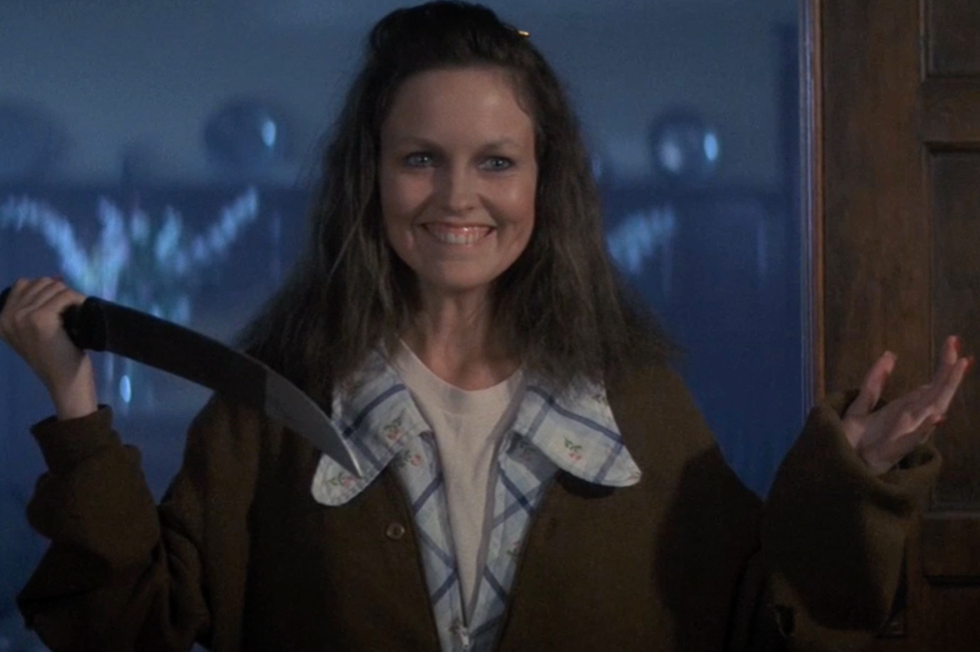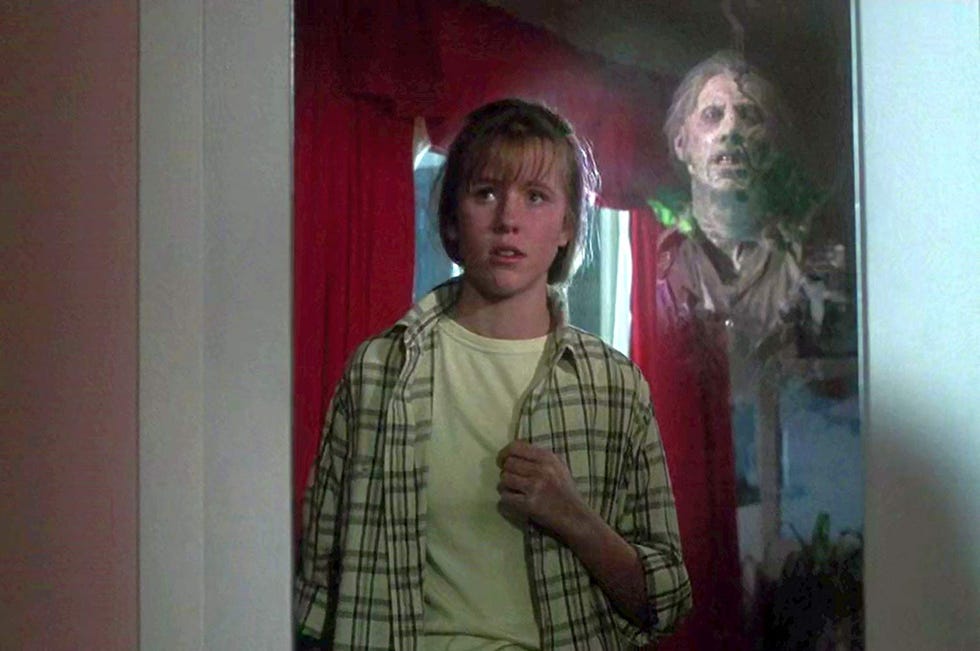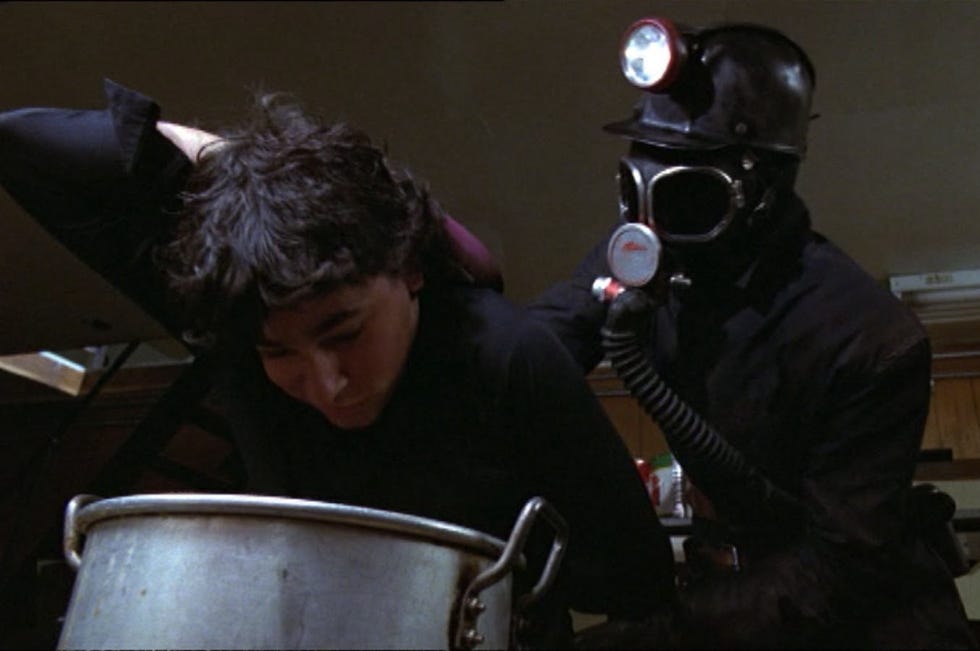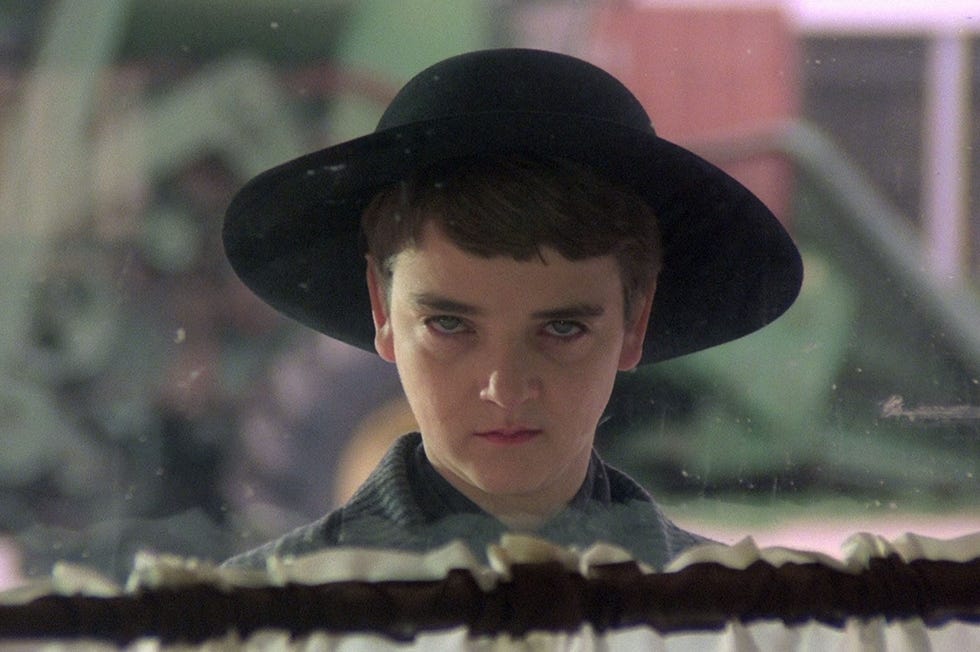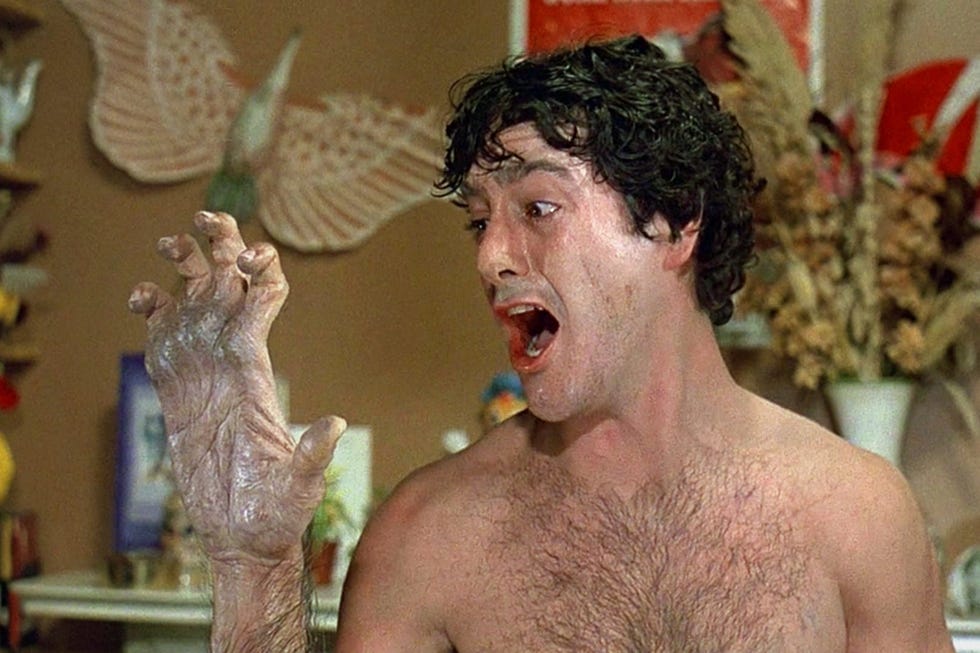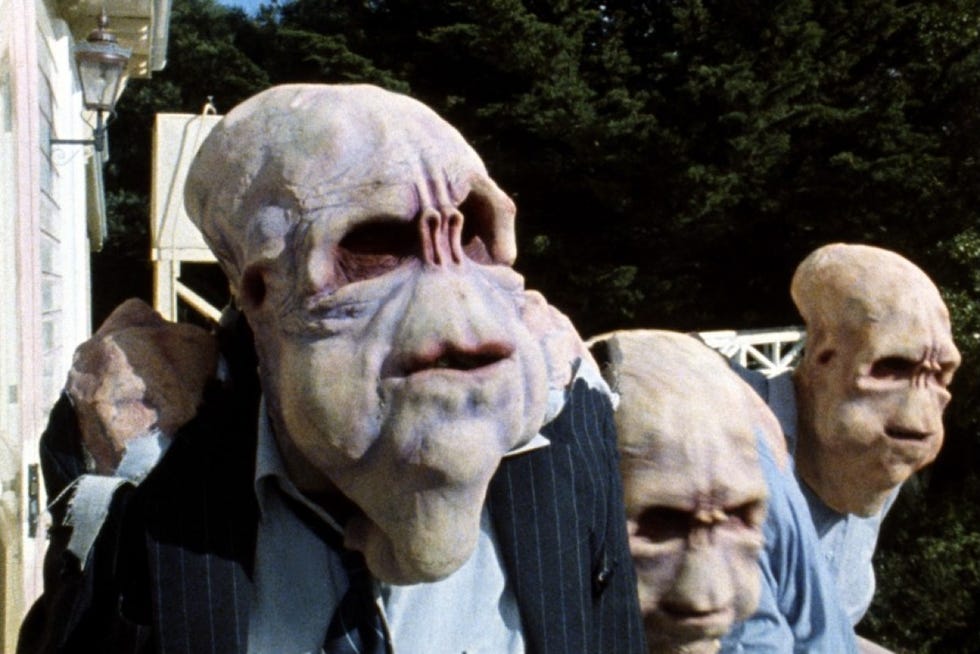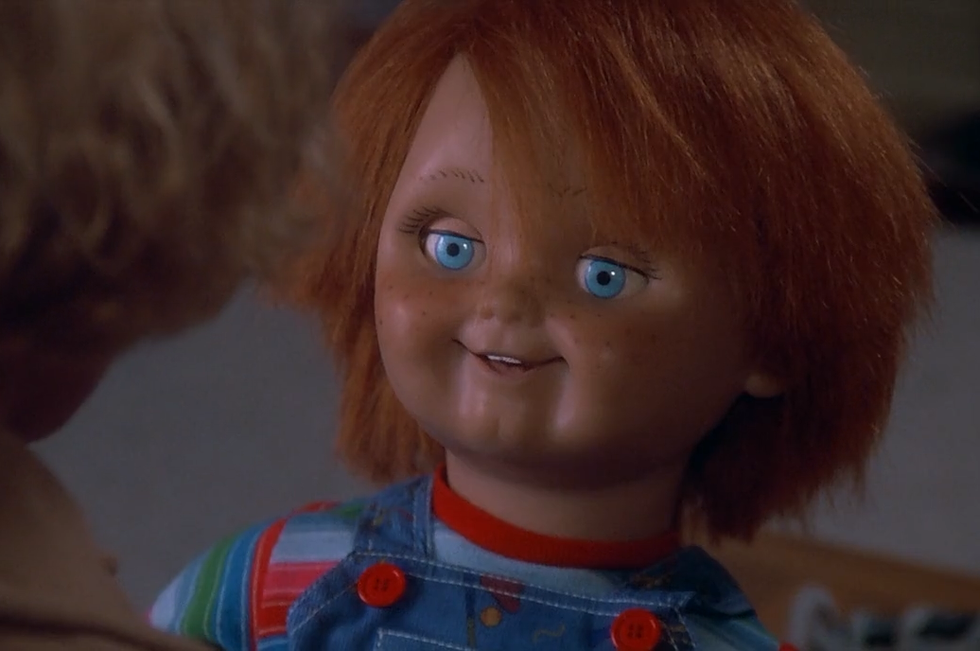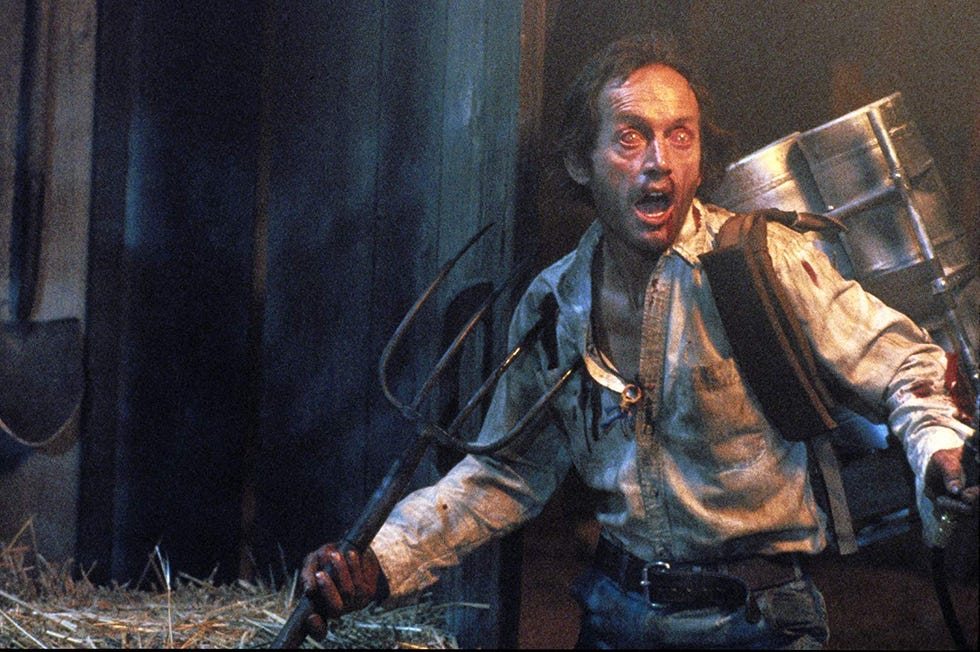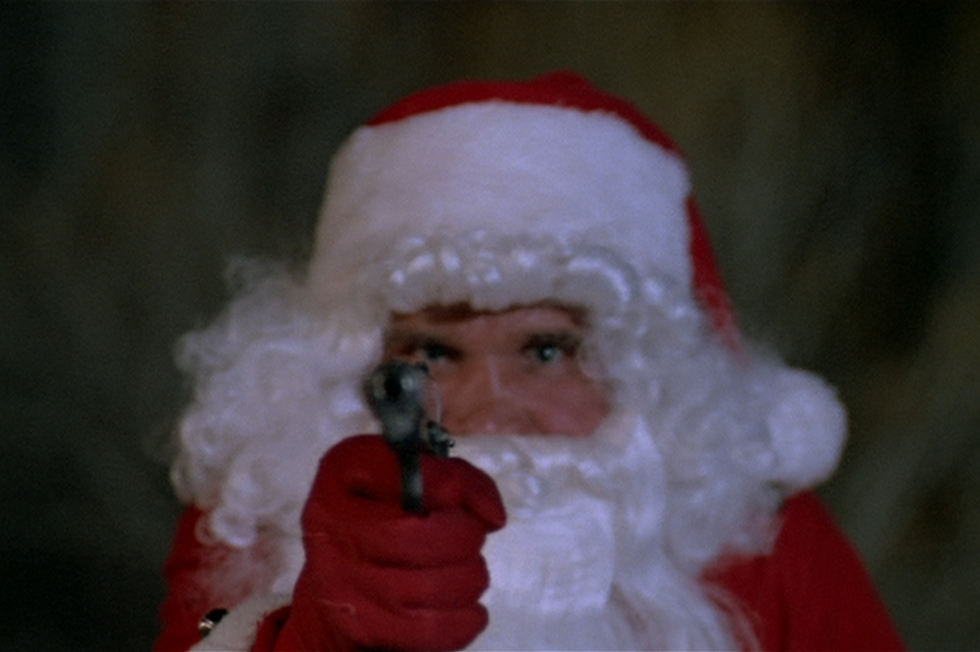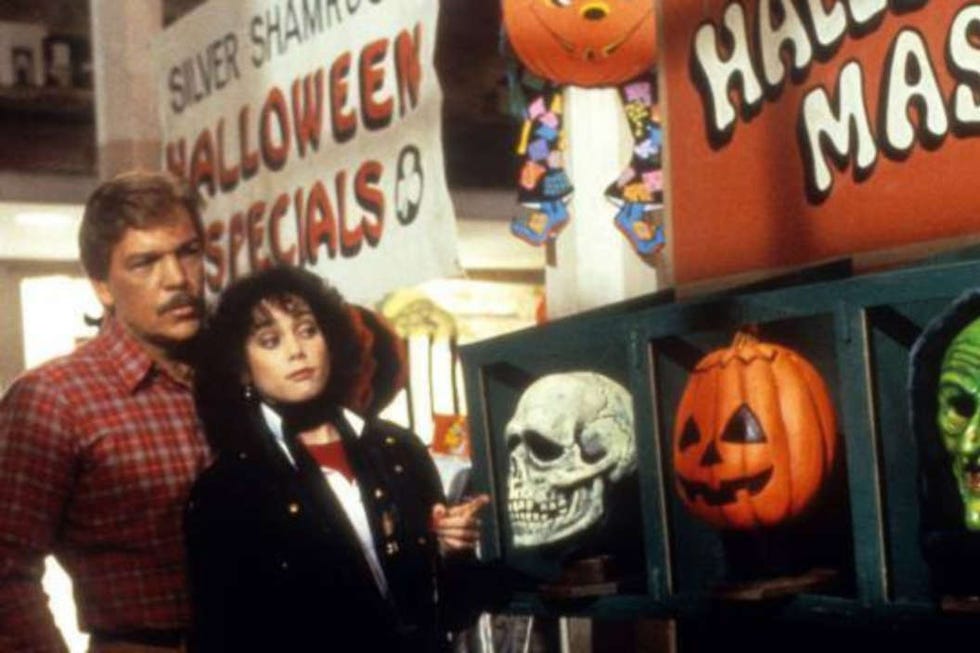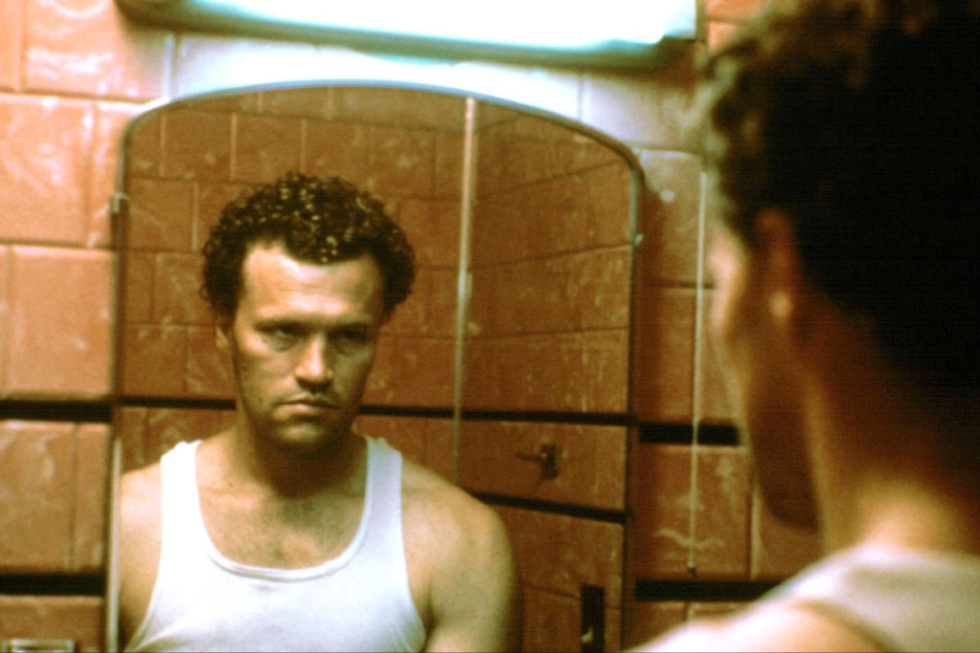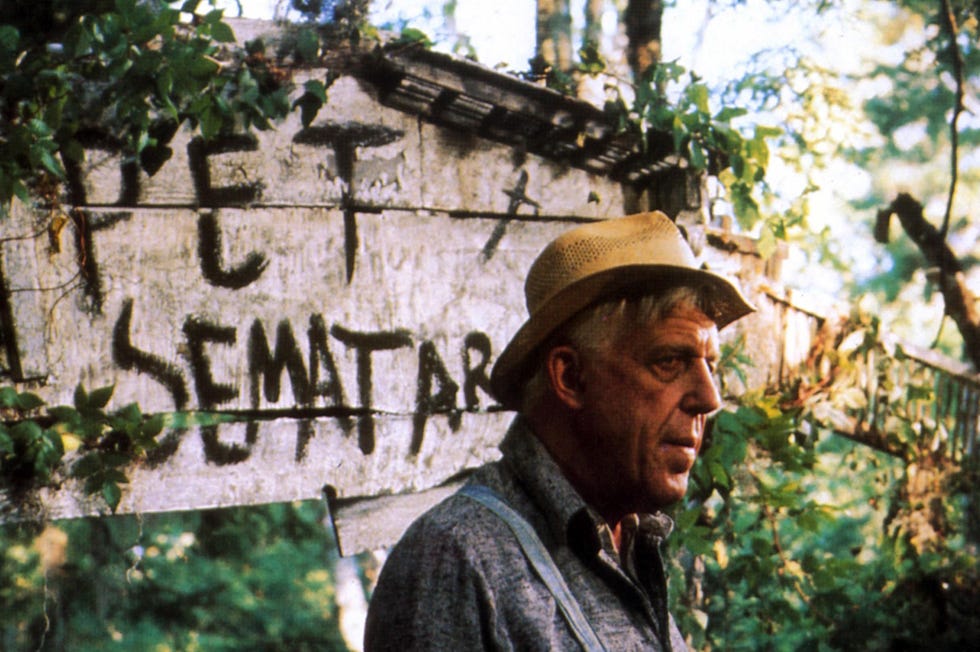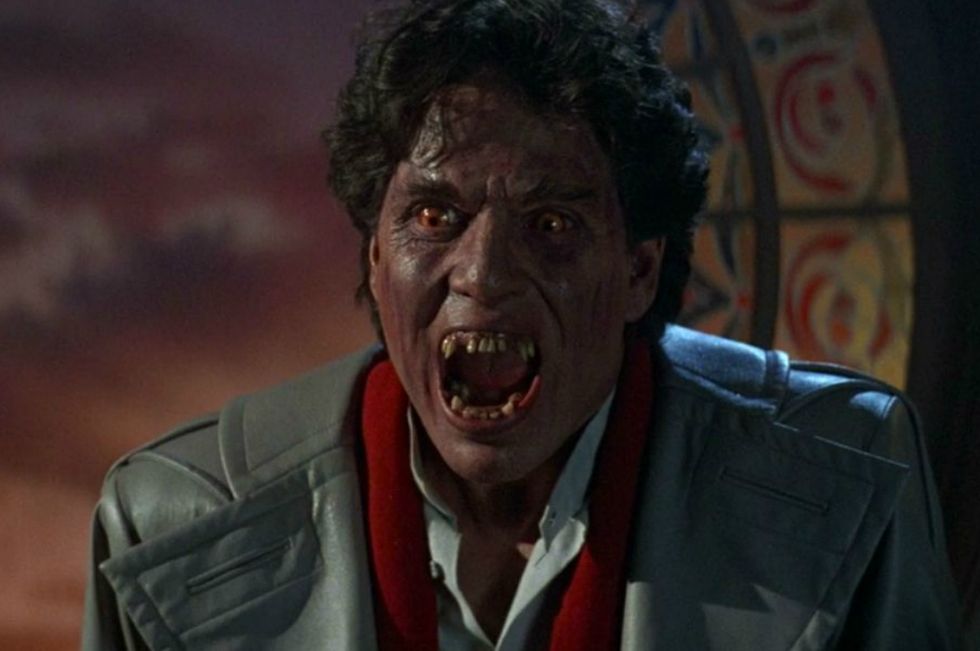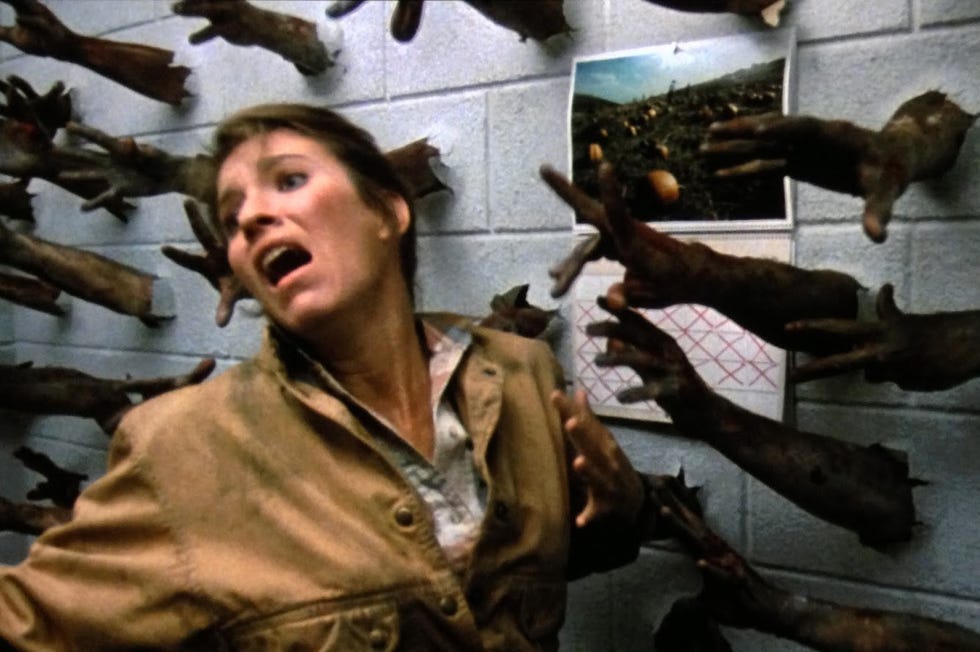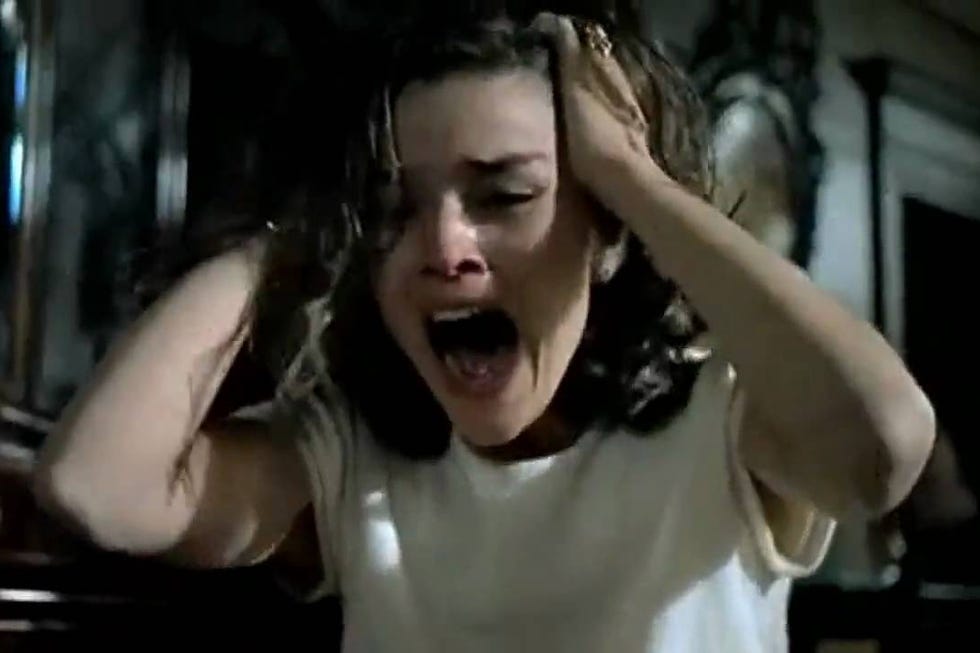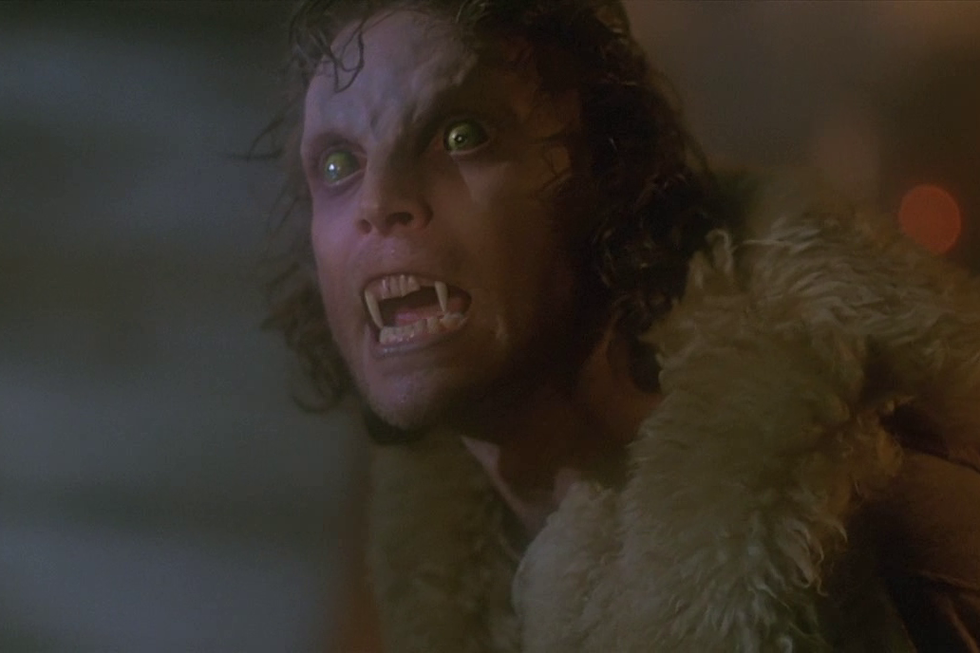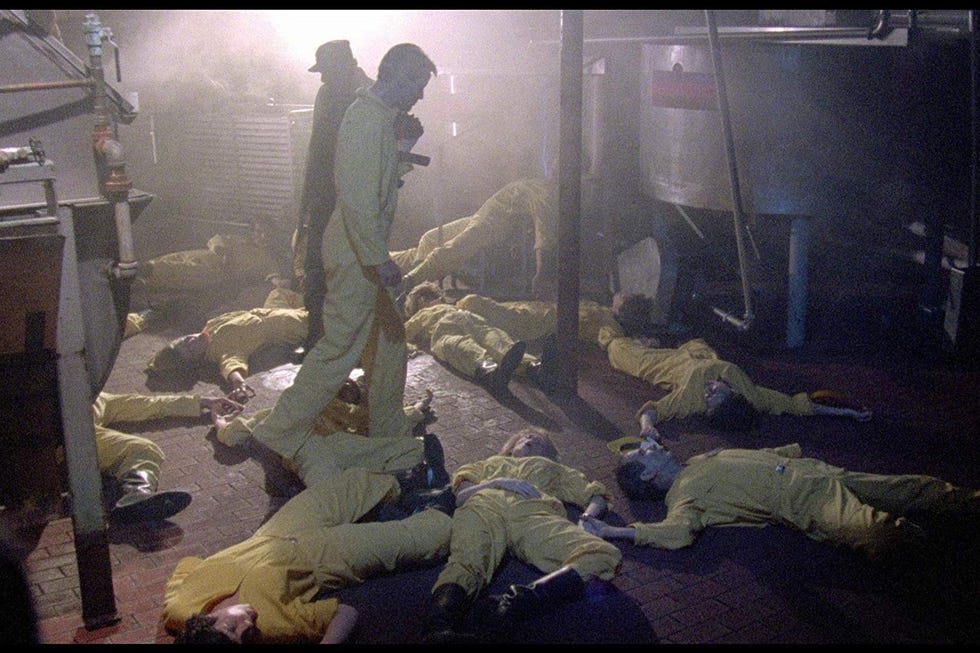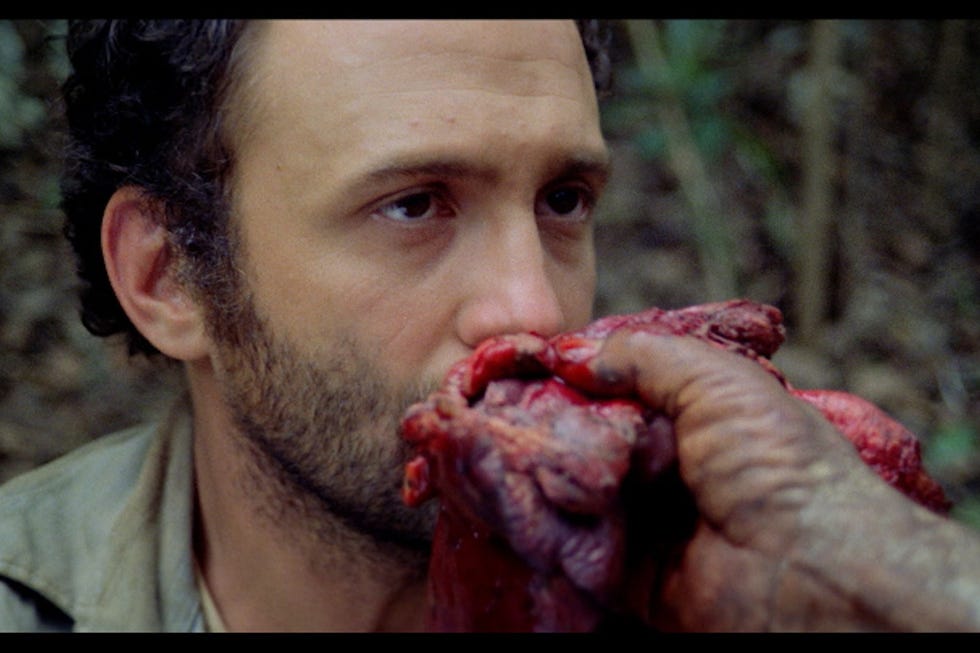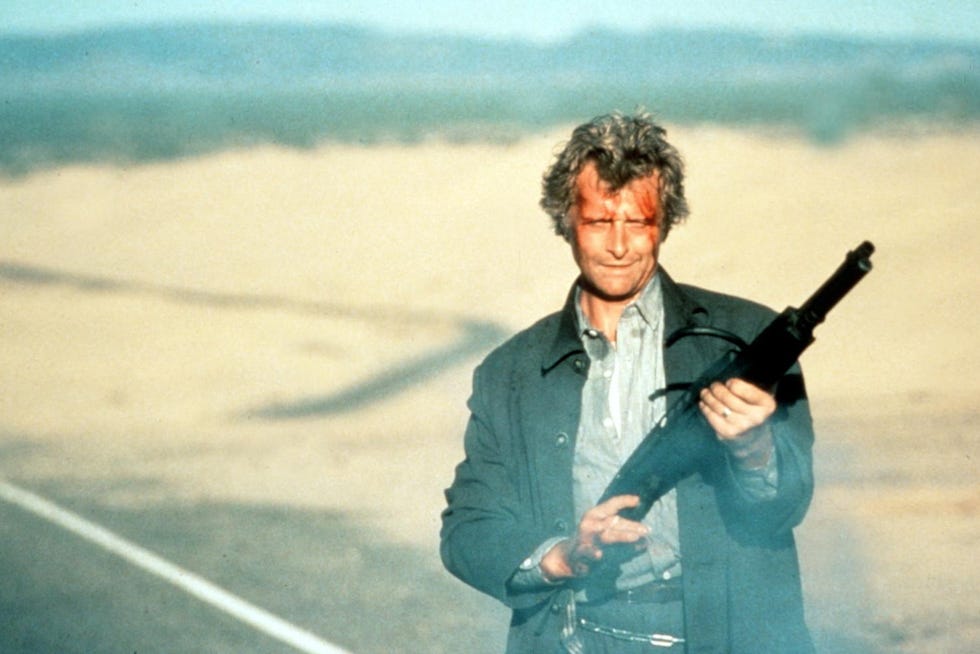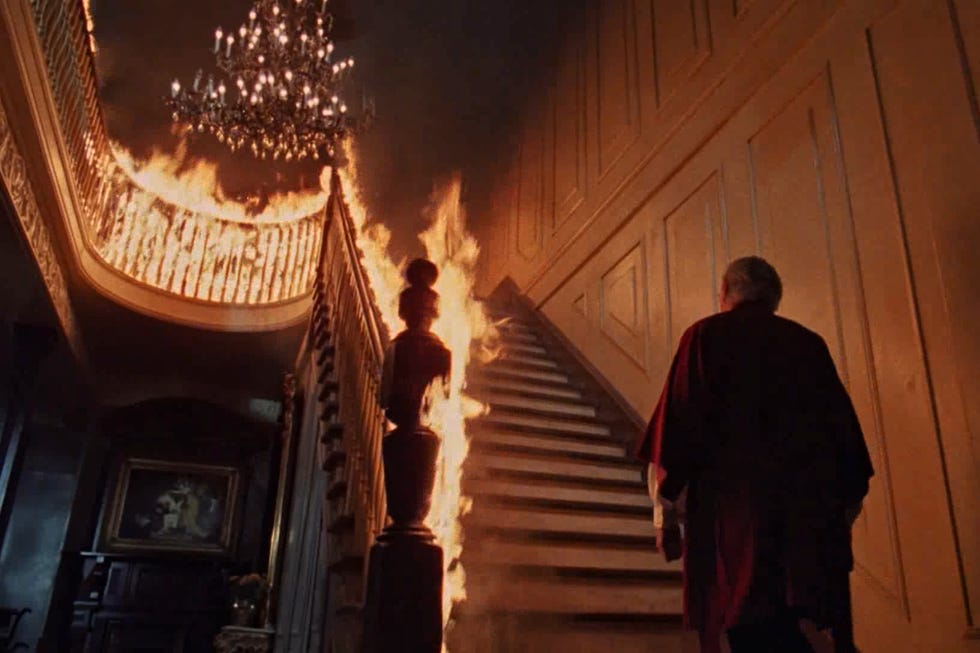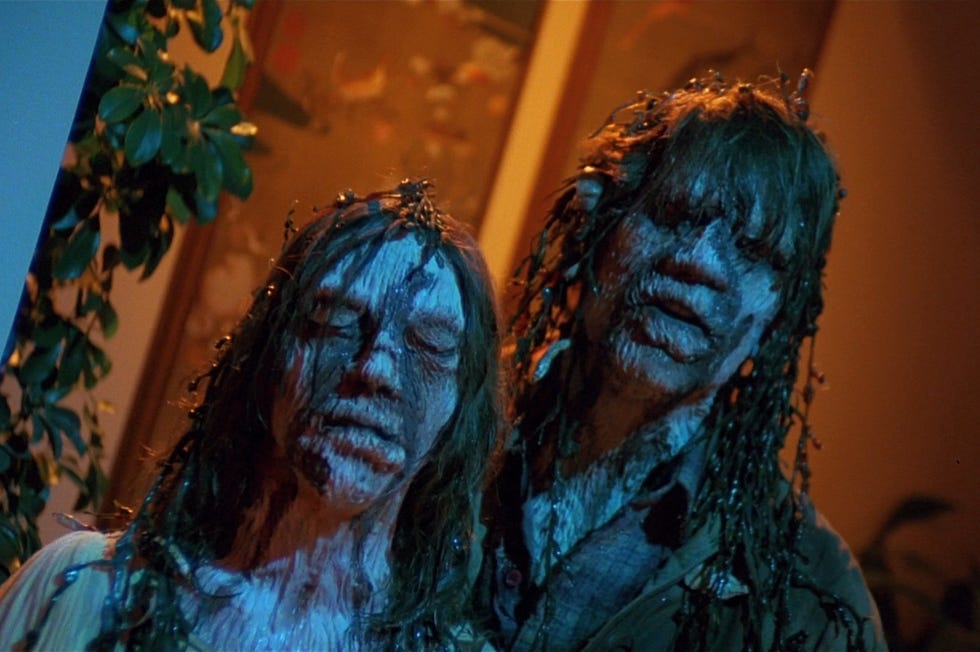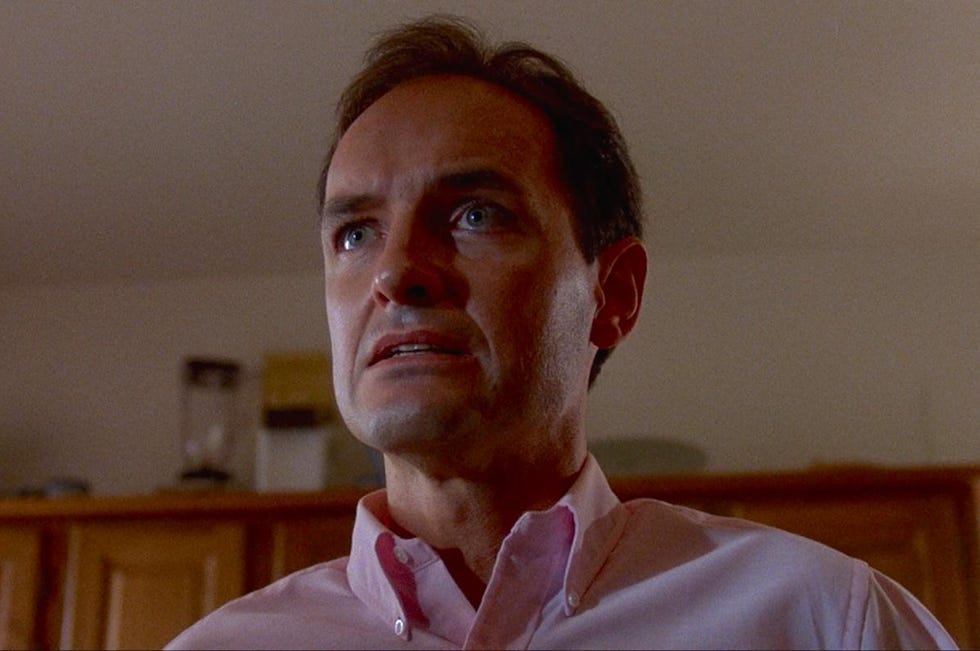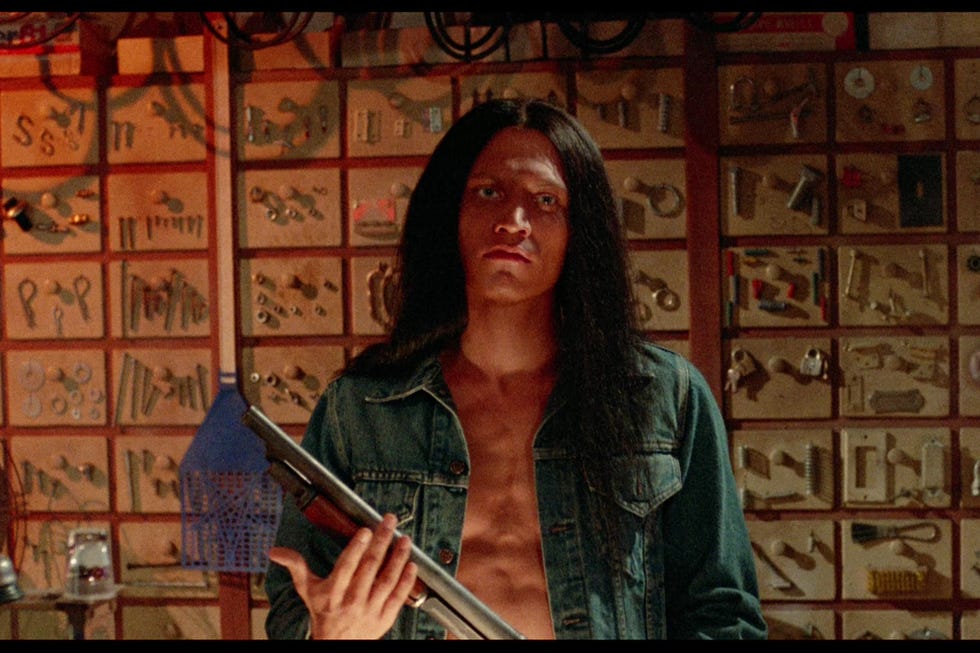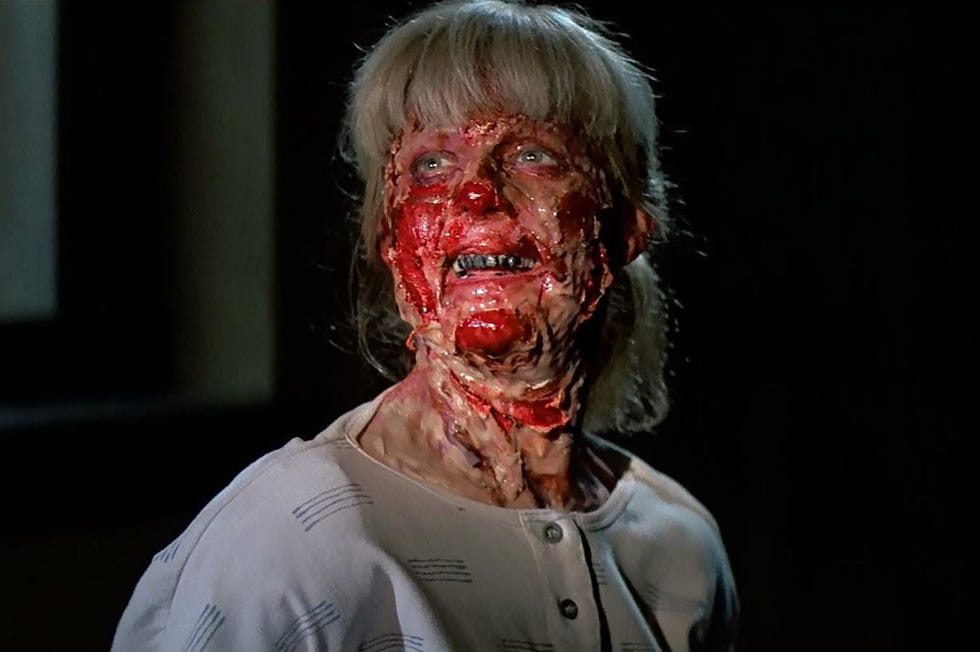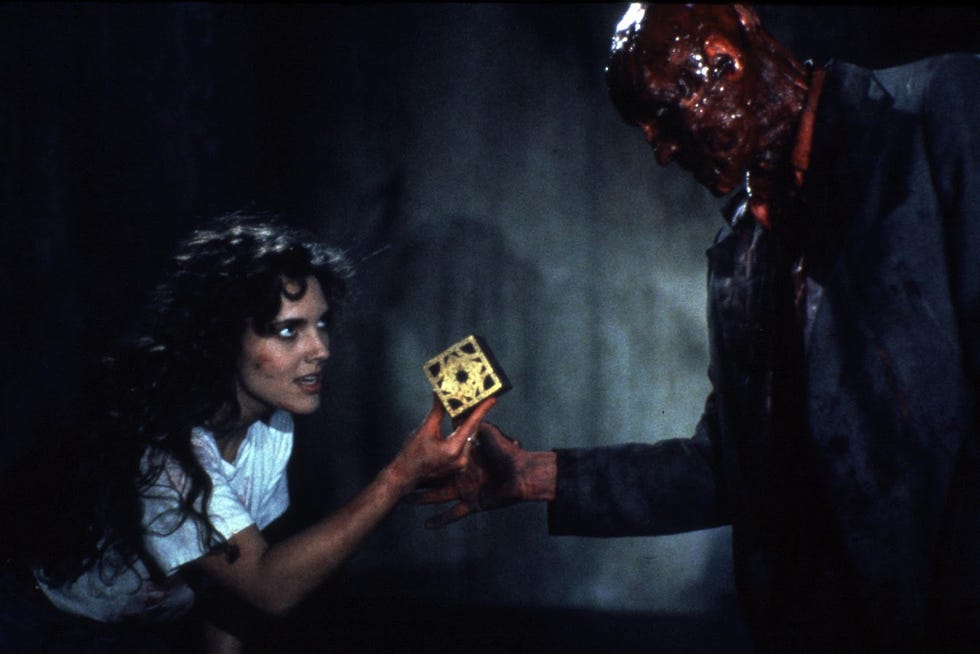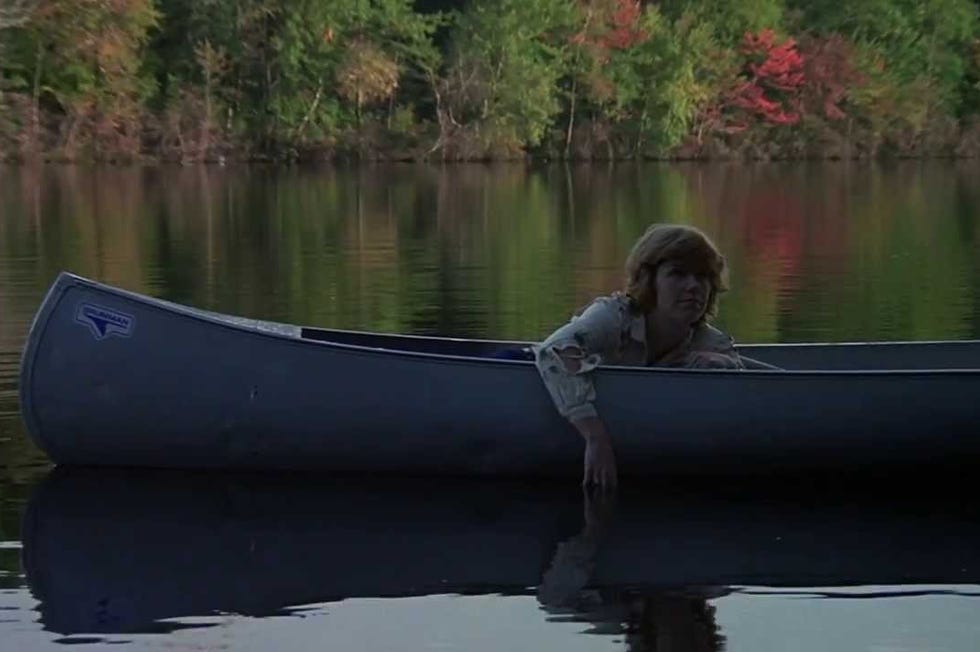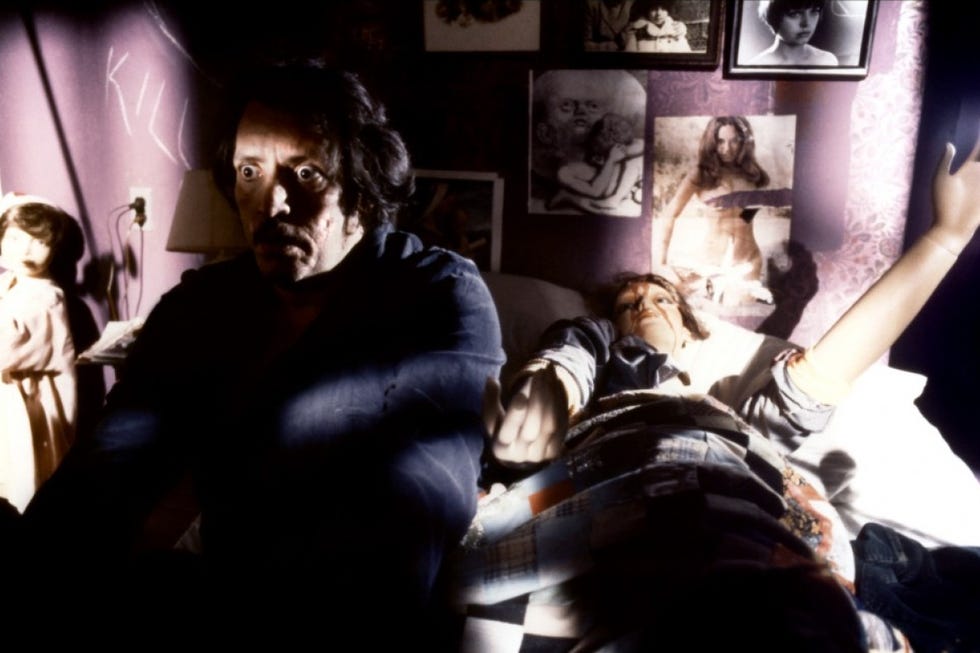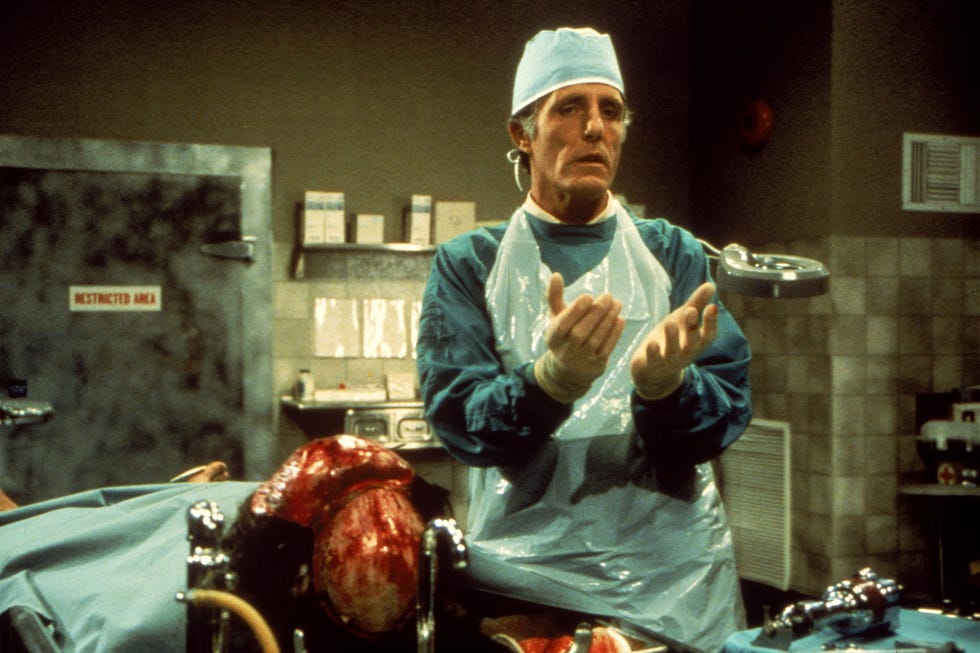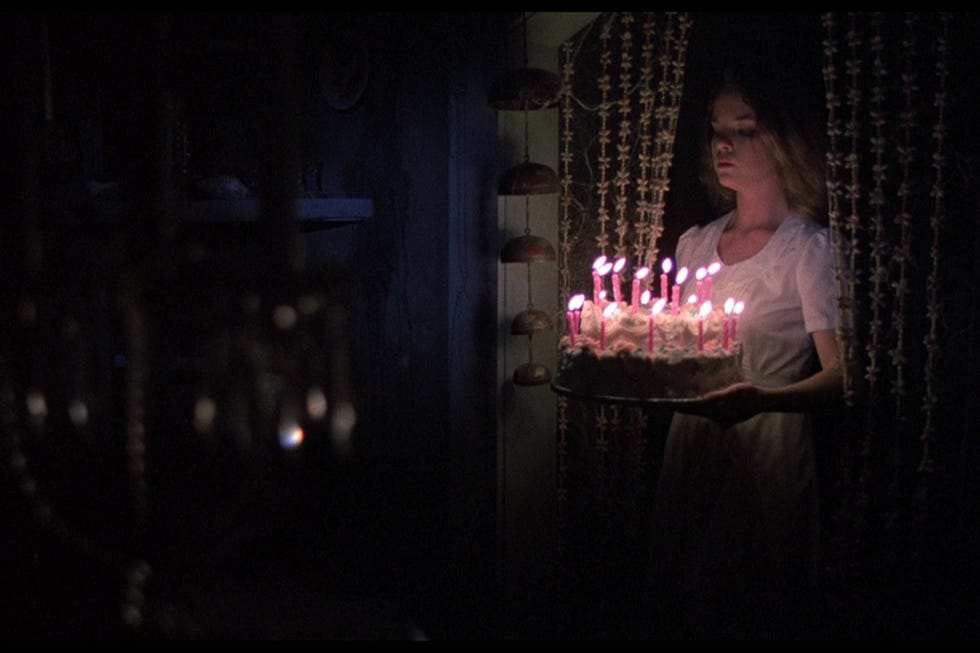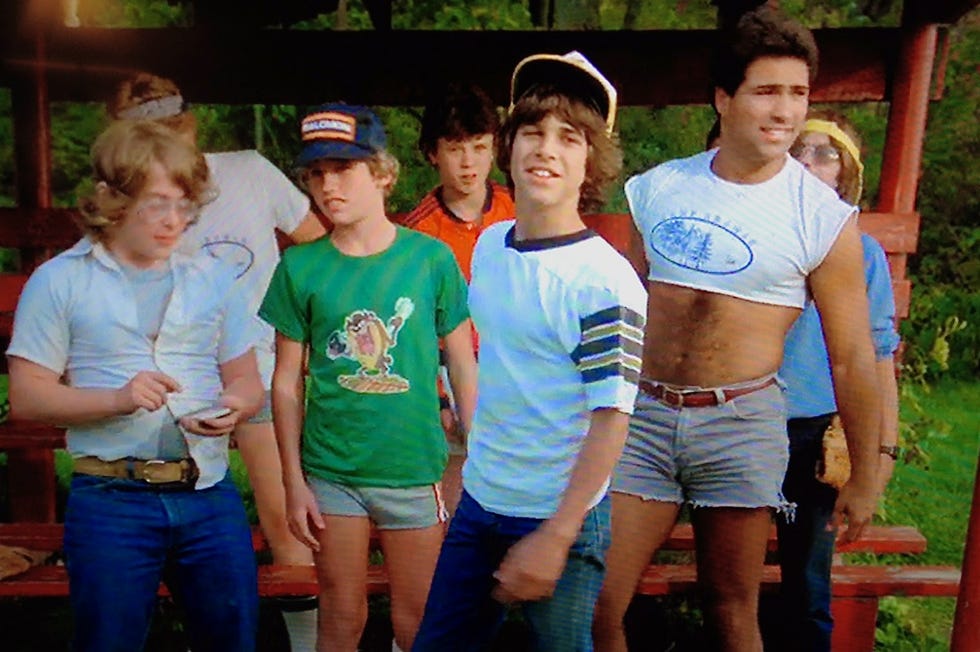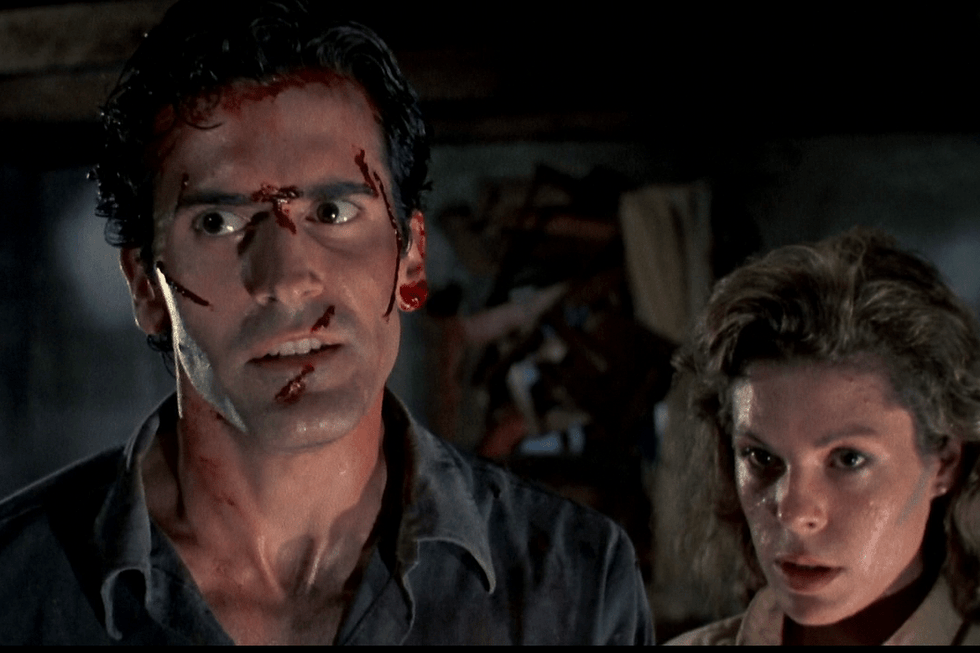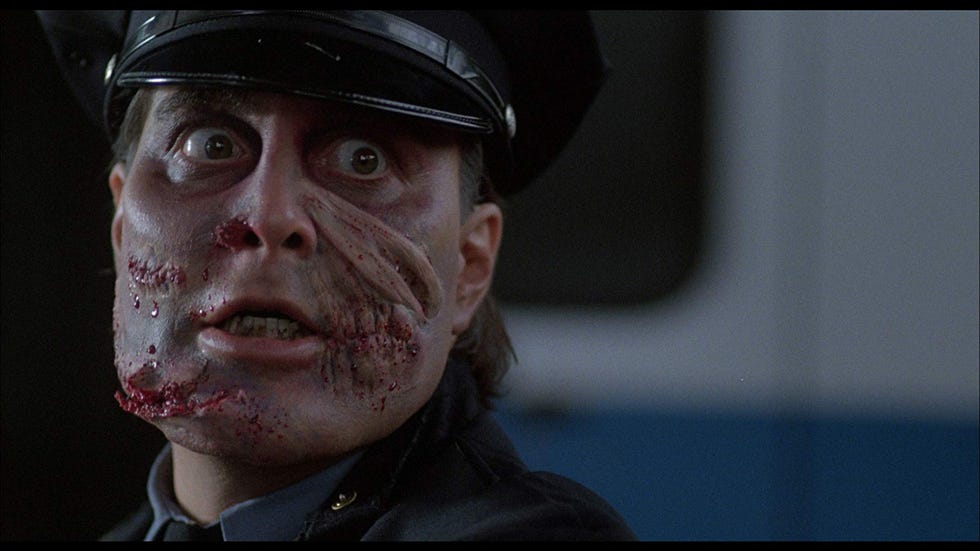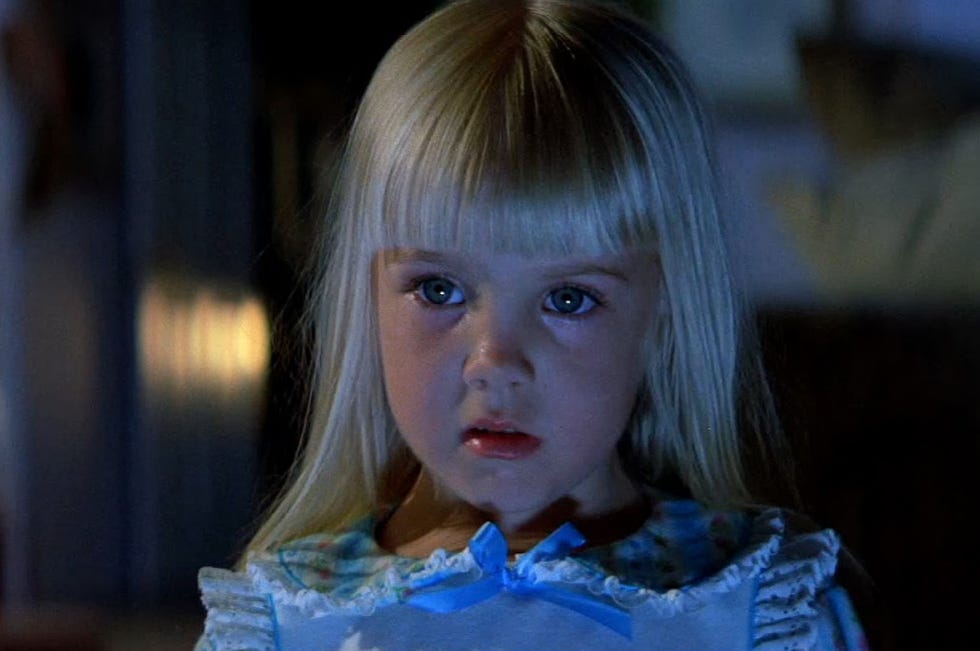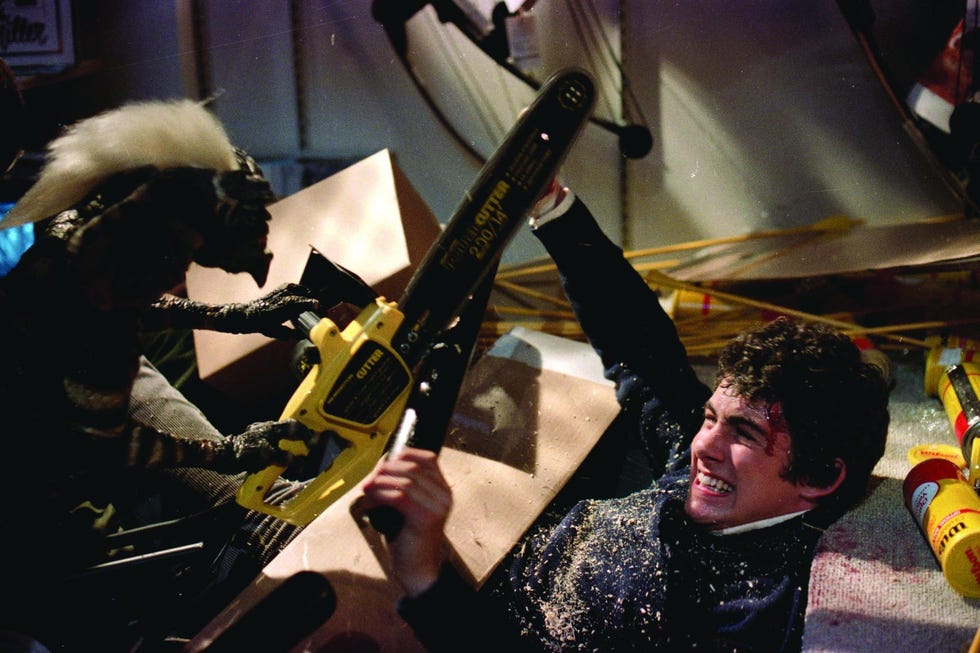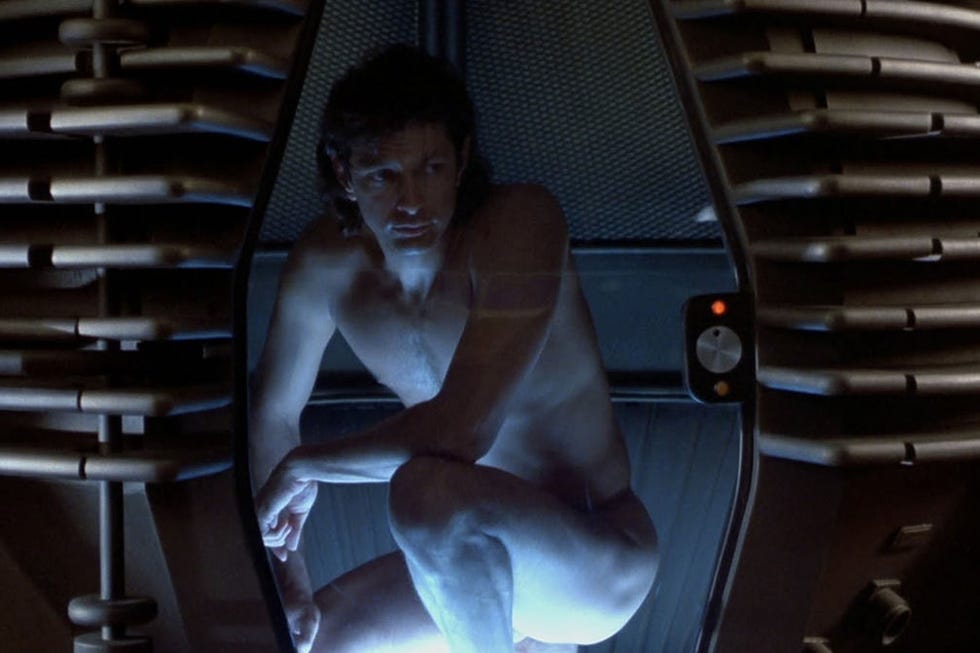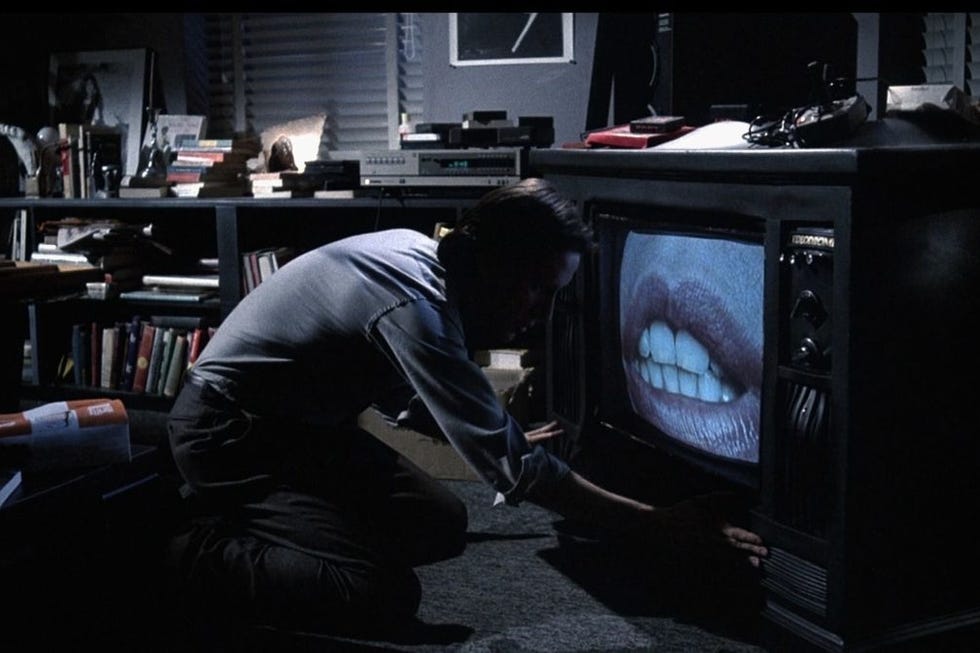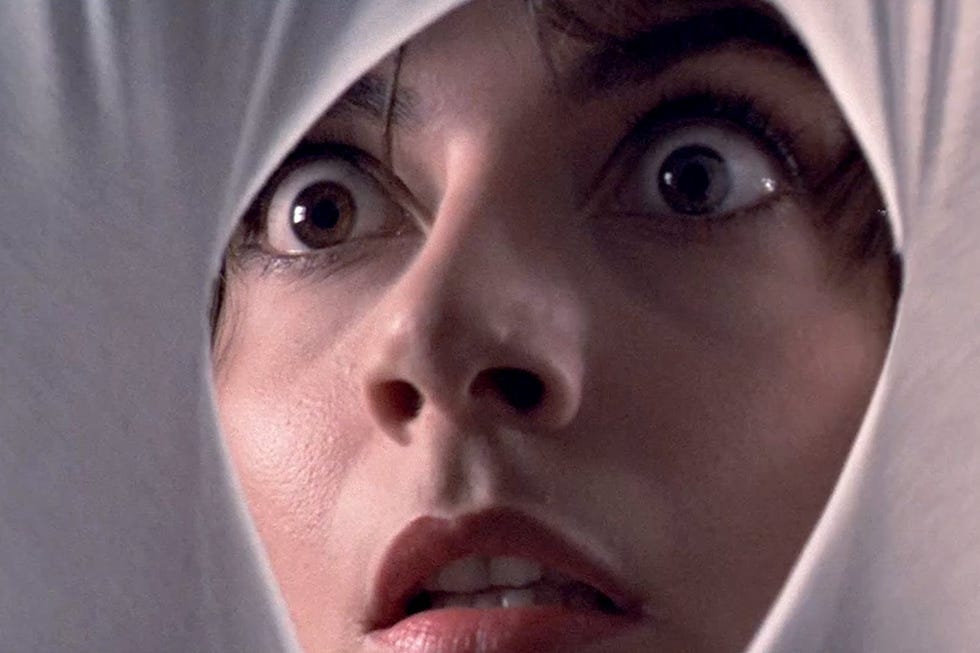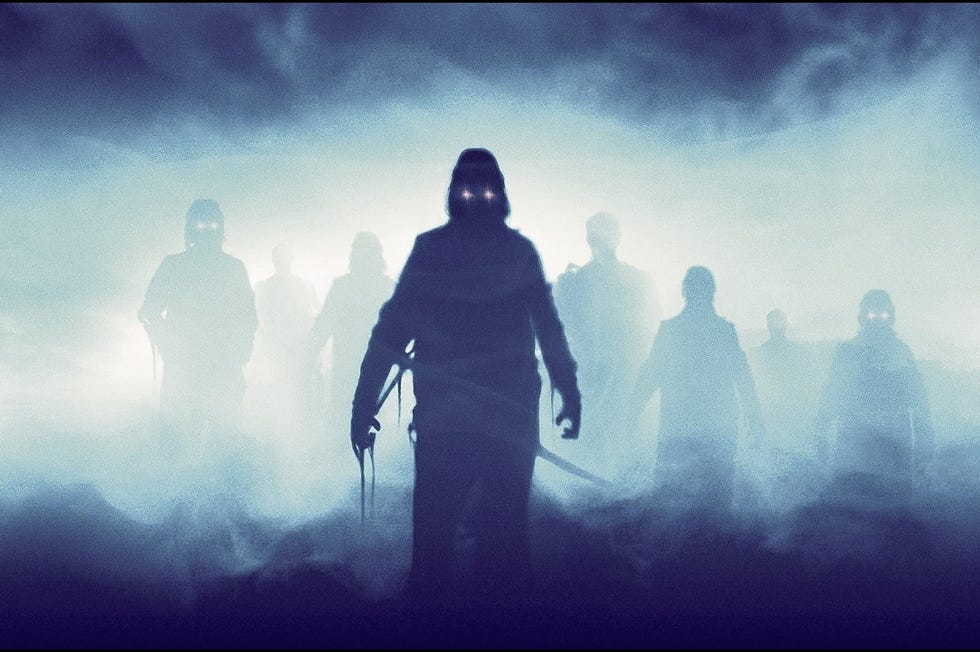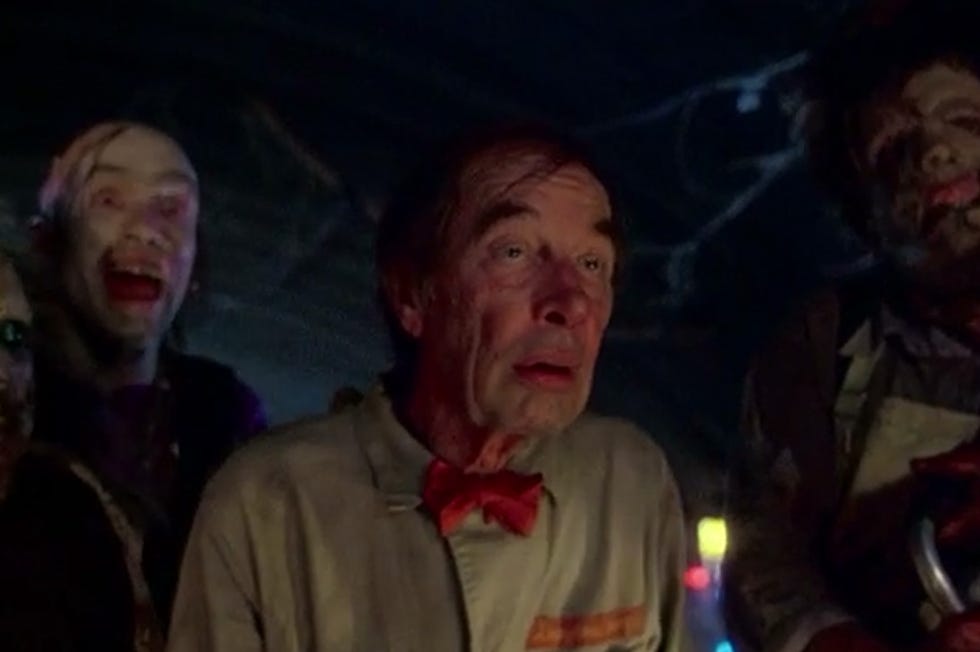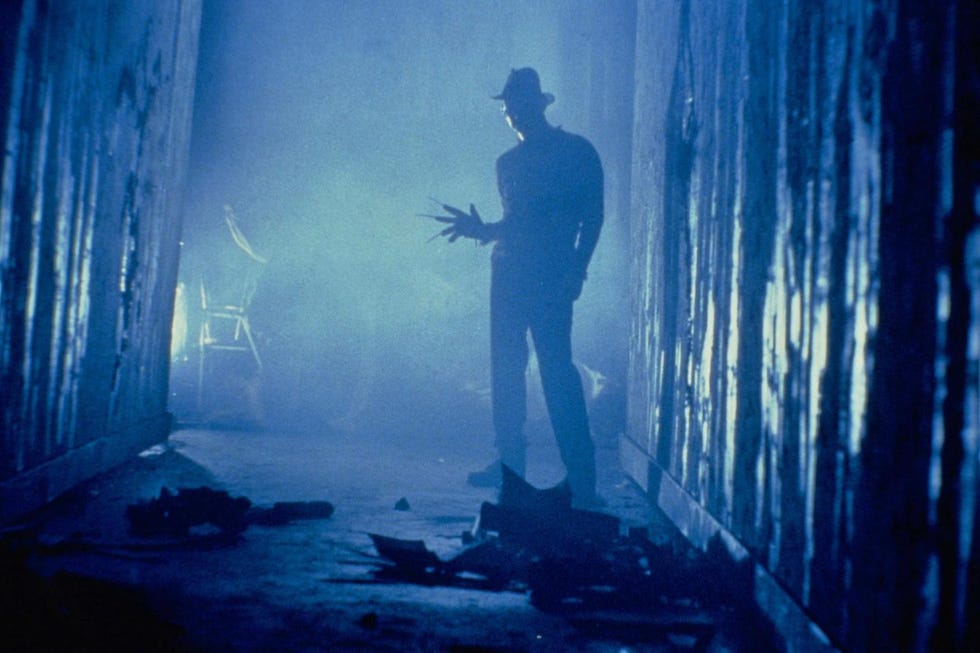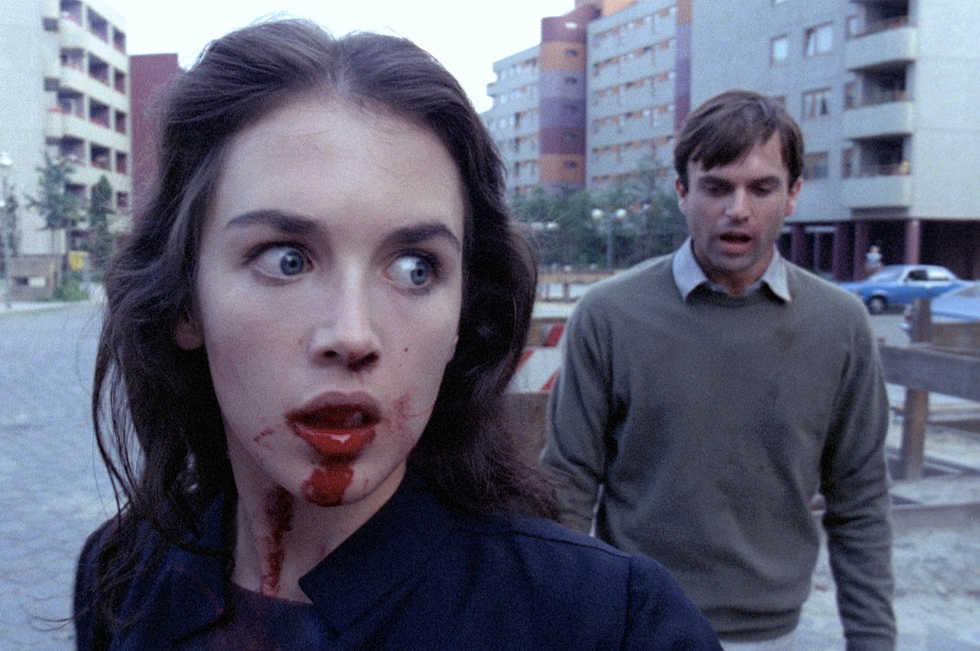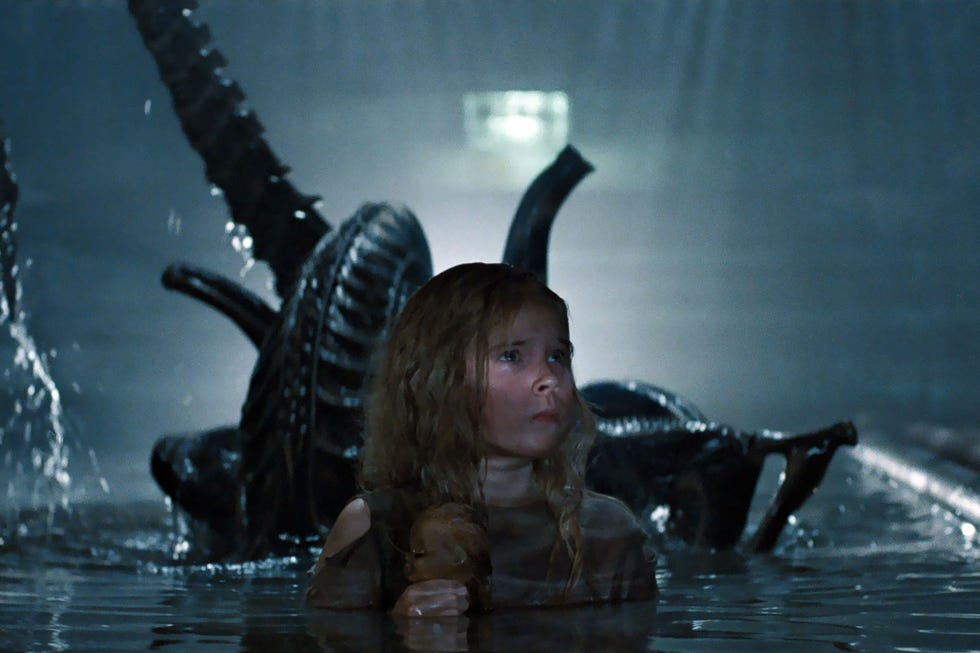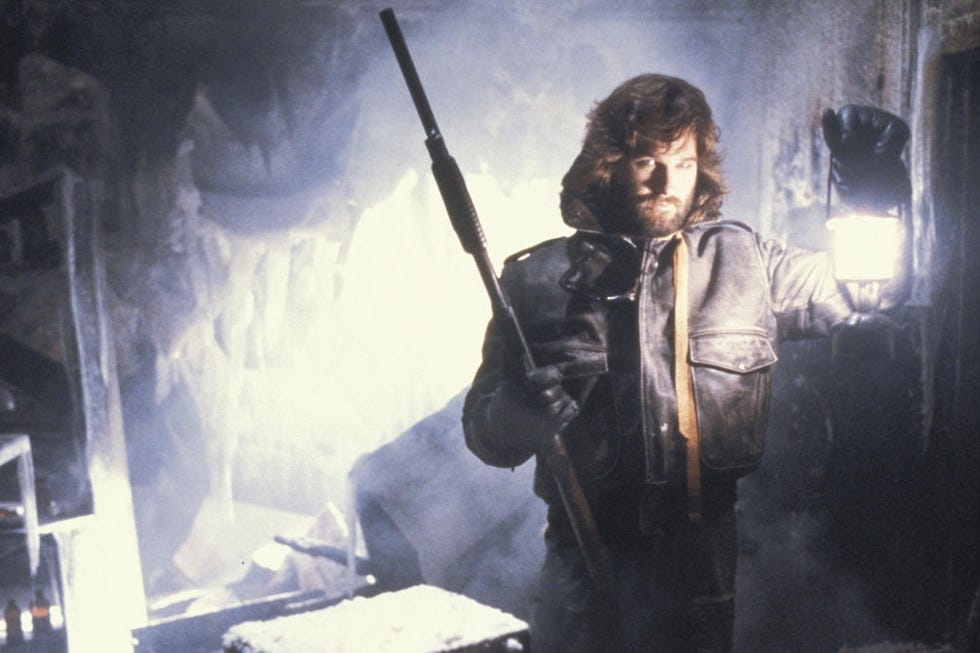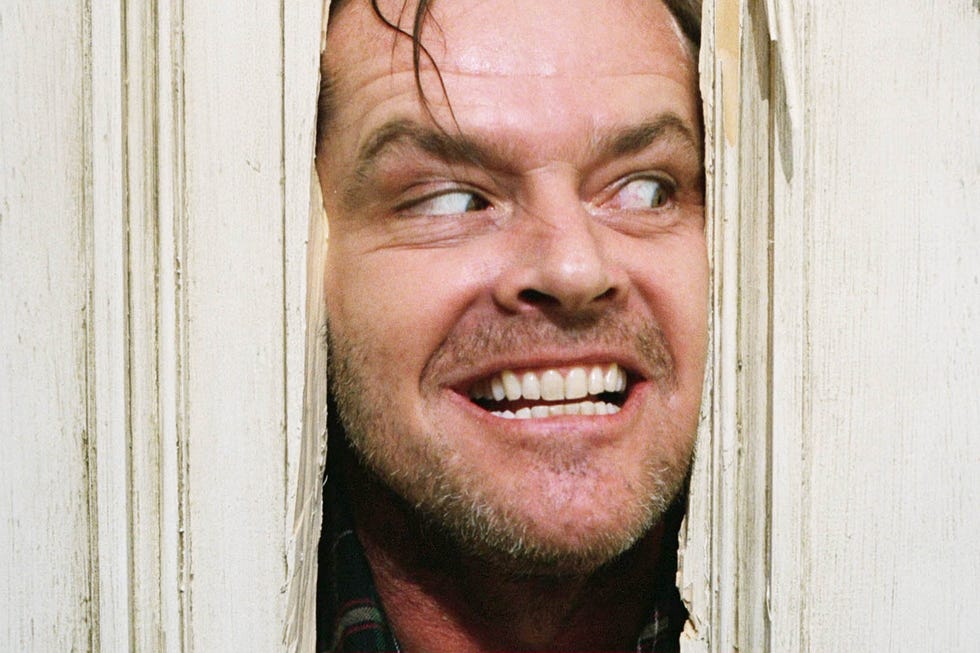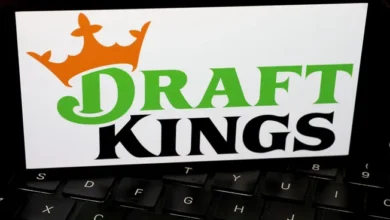The 60 Best Horror Films From the 1980s
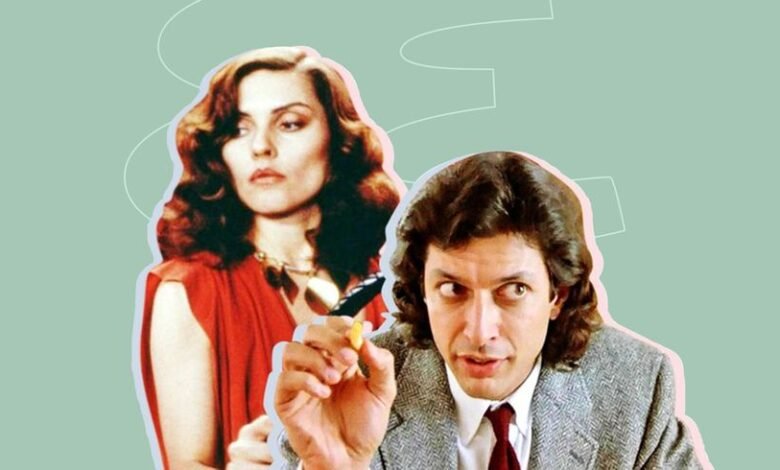
Some critics are heralding this past decade as the golden age of horror, but don’t forget about the eighties! What do you think inspired films like Scream and The Silence of the Lambs? It was a time for experimentation—pushing away from suspenseful thrills and into true terror.
Don’t believe me? Try watching The Boogey Man. I slept with the lights on for a week after my first viewing. The eighties delivered a slew of terrifying hits. There are far too many to count—let alone watch!—so we’ve narrowed down the selection to sixty movies. If you want to brush up on horror history from the decade that nailed it, keep scrolling. Below, you’ll find cult classics like Child’s Play and A Nightmare on Elm Street, along with underrated gems like April Fool’s Day and The Hitcher. We can learn a lot from the eighties, so grab your popcorn, take your pick, and start streaming.
60. Waxwork (1988)

Waxwork is Madame Tussauds’ worst nightmare, and it’s about to be yours, too. When a wax museum comes to town, a group of teenagers (why is it always teenagers?) check out the exhibit’s midnight premiere. Sounds great, right? Nope. Instead of marveling at funky sculptures, they become part of the show.
59. The Burning (1981)

20th Century Studios
This summer-camp-set slasher follows a bunch of teens who accidentally kill their camp’s groundskeeper, Cropsy. They burn Cropsy’s body (!) and try to forget the whole ordeal (!!), but fate has other plans. Five years later, Cropsy returns as a barbecued killer with an appetite for revenge. Fun!
58. Inferno (1980)

20th Century Studios
In this semi-sequel to Dario Argento’s Suspiria, a young poet named Rose Elliot is murdered in New York City after reading a book about the Three Mothers. Her brother, Mark, travels from Rome to investigate her death, but his search is derailed when his friend Sara is killed, too. Could the murders be linked? He’s about to find out.
57. Ghost Story (1981)

Universal Pictures
Ghost Story, directed by John Irvin, stars the legendary Fred Astaire as Ricky Hawthorne. Every year, Ricky takes a trip with his three buddies, Sears James, Dr. John Jaffrey, and Edward Wanderly. Telling ghost stories is their tradition, but when one of Edward’s sons randomly dies, he becomes the subject of their ghost tale, unearthing a deadly secret with sinister consequences.
56. Little Shop of Horrors (1986)

Little Shop of Horrors is a haunting horror comedy about Seymour, a flower-shop assistant pining after his coworker Audrey. One day, he discovers a plant with a strange diet: human flesh. For some reason, he names it Audrey II—but that’s beside the point. The problem is that Seymour has a people-eating plant to feed and a woman to impress. Can you guess what happens next?
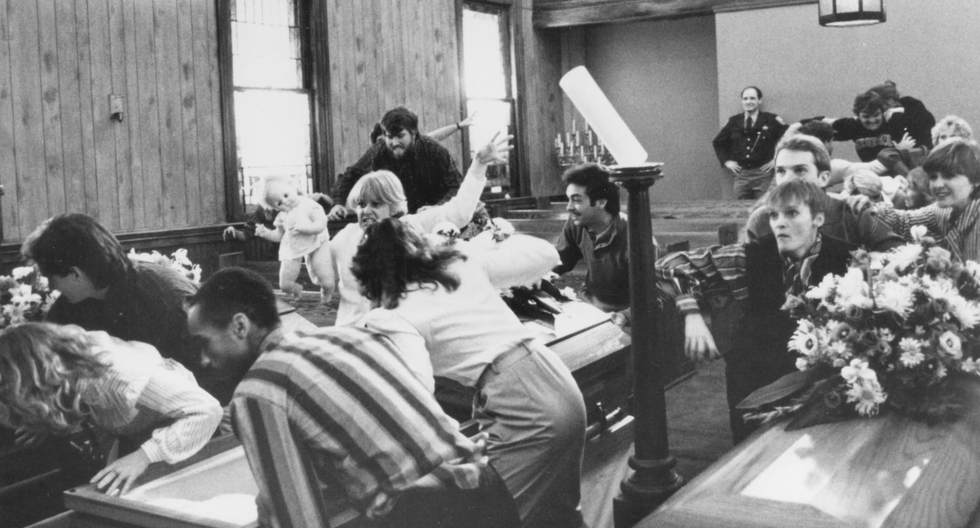
55. Silver Bullet (1985)
A quiet town is disrupted by a series of murders that no police officer can solve. Naturally, the residents try to hunt the assailant on their own—but that comes at a brutal price. As the town’s paranoia grows, Marty, a young boy in a wheelchair, discovers a werewolf lurking among them. Armed with information that no one else has, Marty decides to catch the killer himself.
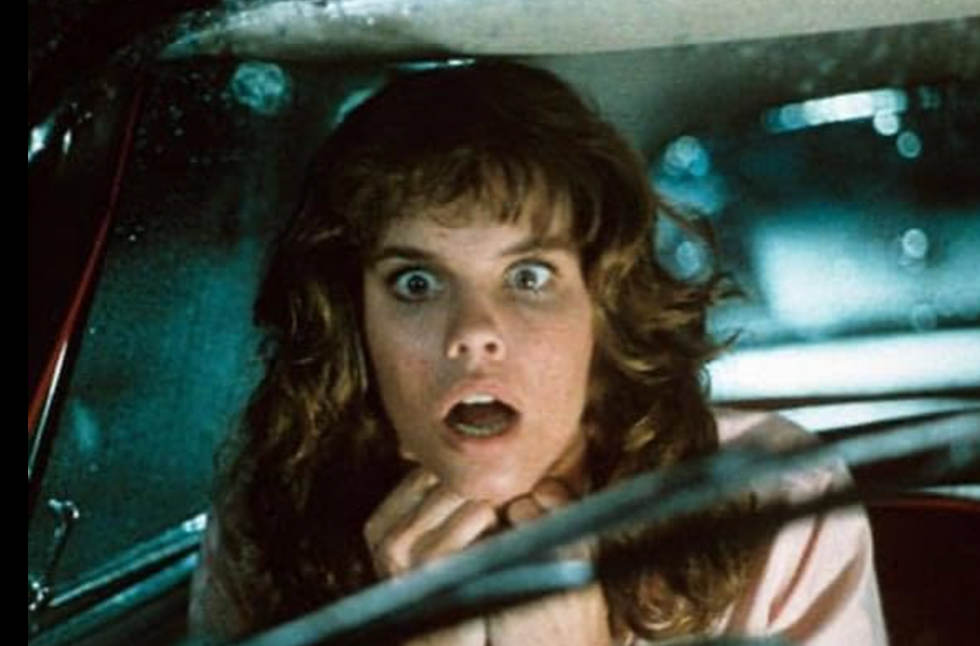
54. Christine (1983)
Christine may be one of Stephen King’s strangest novels, sure, but it certainly makes for a campy adventure. A high school nerd named Arnie Cunningham buys a 1958 Plymouth Fury in hopes of becoming popular. For a while, it works—who can resist a dope ride? Unfortunately, Arnie’s luck changes when he learns the car is possessed by a vicious spirit.
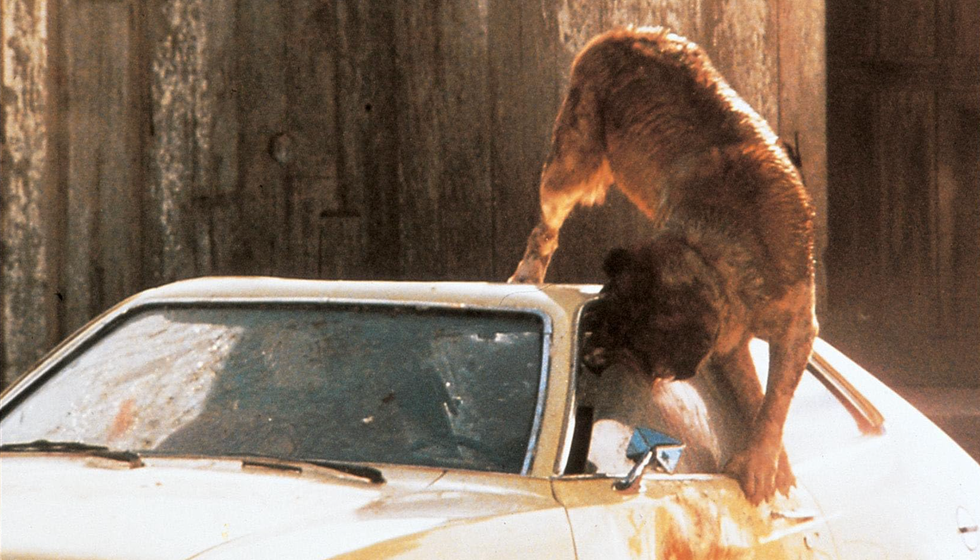
53. Cujo (1983)
If you’re afraid of dogs, this is not the movie for you. The eponymous canine is a fluffy St. Bernard who is bitten by a bat. Though Cujo survives the attack, the bat’s venom transforms him into a violent beast. When he goes on a deadly rampage through town, his panic-stricken owners try their best to stop him.
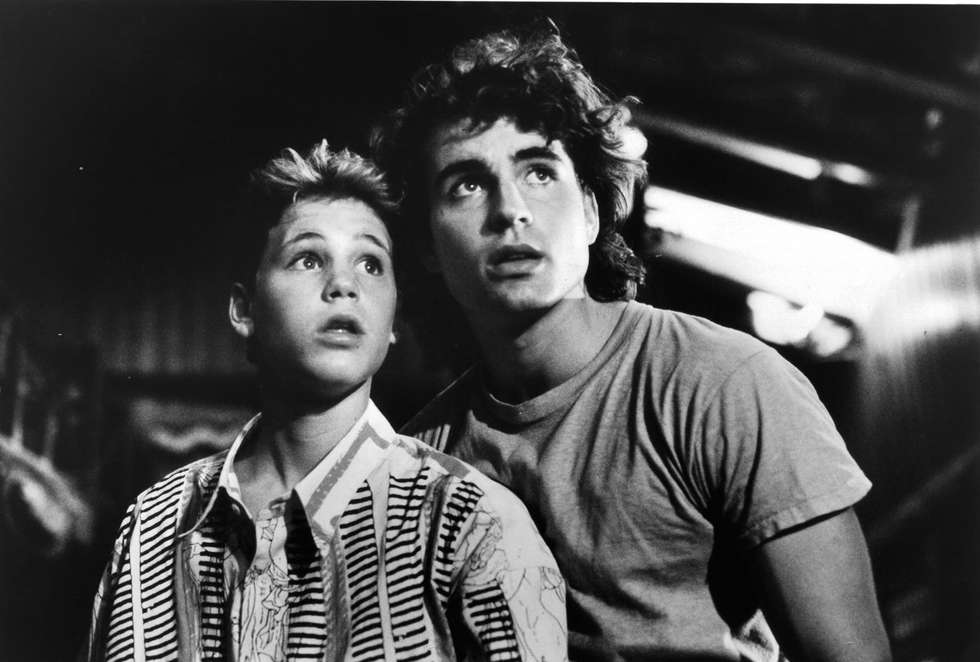
52. The Lost Boys (1987)
Amazon
In The Lost Boys, a pair of brothers, Michael and Sam, move to northern California with their mom. Being the new kid on the block is never easy, but they both make friends. Sam opts for a group of comic-book nerds. And Michael? Well, he befriends David, a tough guy who turns out to be the leader of a vampire gang.
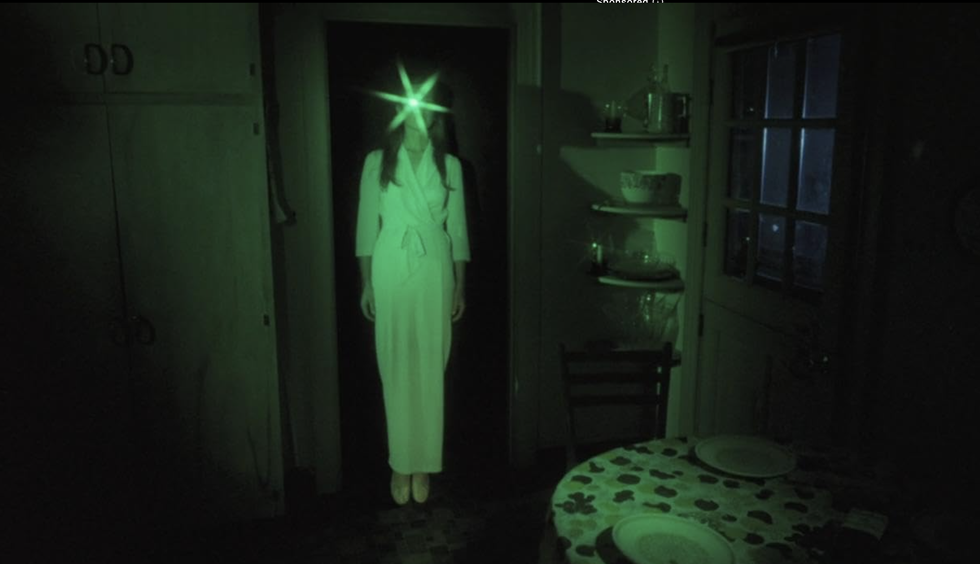
51. The Boogey Man (1980)
A young boy murders his mother’s abusive boyfriend as his sister watches through a mirror. Years later, the mirror is broken, which should be fine—except the man’s evil spirit was trapped inside. To make matters worse, he’s hell-bent on getting revenge.
50. Motel Hell (1980)
Apple TV
A satiric take on some of the genre’s most famous predecessors, this wacko horror-comedy involves a motel-operating couple who sell smoked meats that are really their guests/victims—whom they bury up to their necks in a “secret garden” until they’re ready to be harvested.
49. The Funhouse (1981)
The Texas Chainsaw Massacre director Tobe Hooper goes back to the deformed-masked-psycho well with this entertaining B-movie, where four teenagers decide to spend the night at a carnival—which already sounds like a bad idea—only to have their fun ruined by a giant mutant freak with a penchant for violence.
48. April Fool’s Day (1986)
Buoyed by one of the all-time-great horror-movie posters, this cult classic hybridizes the slasher film and the manor-house murder mystery, detailing a weekend getaway for a group of college kids that turns bloody when someone begins picking them off.
47. The Gate (1987)
The big-screen debut of then-fourteen-year-old Stephen Dorff, Tibor Takács’s film is a superior midnight movie about some kids who, left home alone for the weekend by their parents, discover that the construction-worker-created hole in their backyard is actually a portal to hell—and that clues to how it works can be found in a heavy metal album’s lyrics.
46. My Bloody Valentine (1981)
George Mihalka’s slasher film isn’t particularly inventive, but it makes up for its rote premise (kids are being stalked by a vengeful fiend on Valentine’s Day) with decent plotting, a memorable villain in a mining mask, and a level of violence that was deemed so extreme by the MPAA that the uncut version has still never been released.
45. Children of the Corn (1984)
Based on Stephen King’s short story of the same name, this adolescent nightmare charts the ordeal of a couple who wind up in a Nebraska town where the kids—led by the unforgettably sinister Isaac and Malachai—have decided that ritualistically killing adults is the best way to guarantee a good corn harvest.
44. An American Werewolf in London (1981)
John Landis’s seminal horror-comedy strikes just the right balance between the terrifying and the absurd through its tale of two American backpackers in England who are attacked by a werewolf, leaving one dead and the other to await his lycanthropic fate. Frequently amusing, it also boasts groundbreaking monster-transformation effects by Rick Baker.
43. Bad Taste (1987)
Peter Jackson’s splatter-iffic calling card, this gonzo effort is nominally concerned with a small New Zealand town under siege by aliens, but it’s really about the insanely gory, over-the-top B-movie special effects that Jackson created on his own.
42. Child’s Play (1988)
Tom Holland’s franchise-starting hit tapped into the underlying creepiness of kids’ playthings with its story of a serial killer who transfers his soul into a popular doll and then attempts to leapfrog back into a young boy’s body. The loopy idea is largely sold by the design of Chucky and by Brad Dourif’s voice work for the villain.
41. Pumpkinhead (1988)
Special-effects maestro Stan Winston’s directorial debut is a sturdy supernatural revenge saga about an Appalachian mountain man (Lance Henriksen) who, with the aid of a backwoods witch, conjures the legendary (and magnificent-looking) Pumpkinhead demon to kill those who murdered his son—a decision that ultimately comes back to haunt him.
40. Silent Night, Deadly Night (1984)
One of the most traumatizing horror movies of the era (especially if you were (un)lucky enough to see it at an early age), this scuzzy slasher film features a young boy who witnesses his parents’ brutal murder at the hands of a lunatic in a Santa Claus costume and then years later turns into a like-minded killer.
39. Halloween III: Season of the Witch (1982)
The only Halloween film not to feature Michael Myers (it was intended to turn the franchise into more of an anthology-style series), Season of the Witch, about a conspiracy involving Halloween masks, remains a uniquely unsettling stand-alone film in an EC Comics-by-way-of-John-Carpenter tradition.
38. Henry: Portrait of a Serial Killer (1986)
The film that launched the career of Michael Rooker, John McNaughton’s seminal serial-killer film takes a gritty, no-frills docudrama approach to its story about a psycho (based on real-life convict Henry Lee Lucas) and his partner-in-crime acting on their murderous impulses.
37. Pet Sematary (1989)
It may not quite live up to its Stephen King source material, but Mary Lambert’s adaptation nonetheless captures the overarching don’t-make-deals-with-the-devil mood of its story—about a man who uses a mystical pet cemetery to bring his toddler son back from the grave—while climaxing with a depiction of childlike evil that remains downright disturbing more than three decades later.
36. Fright Night (1985)
Tom Holland’s stellar horror-comedy pits a suburban teenager (William Ragsdale) and his midnight-movie TV-host idol (Roddy McDowall) against a new next-door neighbor (Chris Sarandon) who’s uncovered as a bloodsucking creature of the night.
35. Day of the Dead (1985)
The third installment in George A. Romero’s pioneering zombie series is a scary and smart story about post-apocalyptic survivors in an underground bunker who find themselves increasingly at each other’s throats. At the same time, a team of scientists attempts to find a cure for the plague through research that includes domesticating a brain-muncher known as Bub.
34. Opera (1987)
No one has staged murder quite like Dario Argento, who continued to cement his reputation as the master of giallo (a particular strain of lurid Italian thriller) with this tale of an opera understudy who becomes the lead in a new production of Macbeth, only to be terrorized by one of Argento’s trademark never-seen-except-his-gloved-hands fiends.
33. The Howling (1981)
Joe Dante’s contribution to the werewolf genre (co-written by John Sayles) tracks Dee Wallace’s TV news reporter—still traumatized by her run-in with a serial killer—to a remote resort, where she ends up in all sorts of full-moon-triggered trouble.
32. The Stuff (1985)
Fringe auteur Larry Cohen delivers an amusingly horrific satire of American appetites with this underappreciated B-movie about a mysterious yogurt-like diet snack that becomes a national sensation. There’s just one side effect: The Stuff turns consumers into zombie-esque monsters.
31. Cannibal Holocaust (1980)
With all due respect to its equally revolting kindred spirits (Cannibal Ferox in particular), Ruggero Deodato’s infamous Cannibal Holocaust still stands as one of the most morally repulsive—and, admittedly, effective—horror movies of the decade, courtesy of extreme violence that was either thought to be real (involving humans) or was real (involving animals).
30. The Hitcher (1986)
Further emphasizing The Texas Chainsaw Massacre’s point that picking up strangers on the side of the road is a very bad idea, this Robert Harmon thriller offers up Rutger Hauer as a psycho hitchhiker who makes life a living hell for nice-guy driver C. Thomas Howell.
29. The Changeling (1980)
George C. Scott brings a measure of gravitas to this haunted-house story, about a composer who, still mourning the death of his wife and child, moves across the country to an eerie estate that boasts a ghost who likes to play ball.
28. Creepshow (1982)
Inspired by the macabre tales of EC Comics, this Stephen King–George A. Romero collaboration is a phenomenal anthology, highlighted by a short in which Leslie Nielsen gets revenge on Ted Danson by burying him up to his neck in sand right in front of the ocean’s tideline.
27. The Stepfather (1987)
Long before he was stranded on Lost, Terry O’Quinn was a nutcase weaseling his way into new families as a stepfather—and then going off the bloody deep end like a cross between Jack Torrance and Norman Bates when things don’t conform to his Reagan-era values.
26. The Beyond (1981)
Famed Italian horror director Lucio Fulci’s The Beyond is a gruesome head trip about a Louisiana hotel that contains the doorway to hell, and the new owner who unwittingly opens it, thus instigating all sorts of nasty, hallucinatory satanic madness and concluding with one of the greatest shots in all of eighties horror cinema.
25. Creepshow 2 (1987)
George A. Romero may not have directed this sequel to his anthology hit, but he and Stephen King nonetheless had a guiding hand in its production—and in making it better than its predecessor, thanks to the strikingly sinister “The Raft.”
24. Prince of Darkness (1987)
More than a little bit bonkers—and better off for it—John Carpenter’s severely undervalued Prince of Darkness stars the director’s Halloween lead Donald Pleasance as a priest who believes that a cylinder of green goo is actually Satan.
23. Hellraiser (1987)
Clive Barker paved the way for S&M-style horror with this adaptation of his novella The Hellbound Heart, about a mysterious puzzle box that functions as the portal to a sadomasochistic dimension ruled by a race of nasty Cenobite creatures, led by the porcupine-y Pinhead.
22. Friday the 13th (1980)
The one that truly started it all, Sean S. Cunningham’s Friday the 13th may not feature Jason Voorhees as its actual villain (he wouldn’t even don his signature hockey mask until 1982’s Friday the 13th Part 3), but it remains the template upon which a legion of subsequent slasher films were based.
21. Maniac (1980)
The first of two William Lustig features to make this list, Maniac is a deranged and decidedly unsettling exploitation saga about a crazed loner with a fondness for decorating department-store mannequins with the scalps of his many innocent victims.
20. Re-Animator (1985)
Stuart Gordon’s loose H.P. Lovecraft adaptation is a delirious Frankensteinian riff about a demented medical student (Jeffrey Combs, in a role that rightly turned him into a B-movie icon) who discovers how to bring things back from the dead—albeit with a few unexpected, unpleasant side effects.
19. Happy Birthday to Me (1981)
A wackadoo genre work marked by its bizarre methods of murder and its even more bizarre narrative twists and turns, Happy Birthday to Me is the rare slasher film that constantly keeps you on your toes—up to its surprising final revelations.
18. The Slumber Party Massacre (1982)
Rife with all sorts of psychosexual imagery—none better than the poster-ready sight of cowering women spied through the legs of a man wielding a phallic power drill—this slasher-film anomaly ultimately proves to be a distinctly feminist (and fight-the-male-power) take on the genre.
17. Sleepaway Camp (1983)
An obvious descendant of Friday the 13th, Robert Hiltzik’s Sleepaway Camp is an above-average suspense story about kids being slaughtered at an overnight camp by a mysterious assailant—until, that is, its superbly shocking finale, which stands as the decade’s biggest (and best) horror blindside.
16. The Evil Dead (1981)
Sam Raimi’s breakthrough indie set the stage for the director’s particularly rambunctious style, as well as established the peerless comedic-hero persona of star Bruce Campbell.
15. Maniac Cop (1988)
Featuring one of the all-time great taglines (“You Have the Right to Remain Silent…Forever”), William Lustig and Larry Cohen’s Maniac Cop follows a traditional return-of-the-repressed formula via its portrait of a vengeful cop who comes back from the great beyond in order to punish the corrupt officials who locked him up with those he’d previously put away.
14. Poltergeist
Whether you believe Poltergeist was helmed by credited director Tobe Hooper or (as rumors have long suggested) producer Steven Spielberg, this TV-phobic haunted-house thriller delivers unforgettable scares, a classic horror-cinema line (“They’re heeeere”), and a rather touching portrait of the strength of the American nuclear family.
13. Gremlins (1984)
One of Amblin Entertainment’s finest productions, this darkly humorous holiday horror show (directed by Joe Dante, executive-produced by Steven Spielberg, and written by Chris Columbus) revolves around a strange furry pet named Gizmo who, if touched by water or fed after midnight, sprouts hordes of maniacally evil Gremlins.
12. The Fly (1986)
David Cronenberg’s big-budget body-horror saga (a loose adaptation of George Langelaan’s story and the ensuing Vincent Price film) details a scientist’s (Jeff Goldblum) efforts to create a teleportation device, and the hideous consequences of his experiment when a fly accidentally enters his machine.
11. Near Dark (1987)
This Kathryn Bigelow film is an unbelievably moody, stylish vampire-western hybrid that’s as romantic as it is tense, featuring various cast members (Lance Henriksen, Jenette Goldstein, and Bill Paxton) from her future husband (er, ex-husband) James Cameron’s Aliens.
10. Videodrome (1983)
A year after Poltergeist suggested that television was a disruptive force in the American family, David Cronenberg suggested that it was a conduit for a “new flesh” in Videodrome, a madness-infected film about a Canadian TV-station owner (James Woods) who stumbles upon—to his eternal hellish-hallucinatory dismay—a broadcast of red-room torture.
9. Tenebre (1982)
Dario Argento’s best film is this superlative giallo in which an American writer, while in Rome to promote his new book, becomes embroiled in a police case about a serial killer whose methods may be modeled after the ones found in his novel. Few horror movies have ever been this vividly awash in issues of twisted sexuality, voyeurism, gender power dynamics, mirror-image doubling, and the role between artist and spectator.
8. The Fog (1980)
John Carpenter’s follow-up to 1978’s Halloween is an old-fashioned ghost story about drowned mariners who return to exact revenge on the descendants of those who lured them to their deaths—a story that’s elevated by Carpenter’s unparalleled mastery of widescreen visuals.
7. The Texas Chainsaw Massacre Part 2 (1986)
How do you follow up one of cinema’s all-time-scariest films? If you’re Tobe Hooper, you take things in a decidedly more comedic direction and, in the process, deliver a second helping of Texas Chainsaw Massacre mayhem that’s as goofy as it is grisly. “Dog will hunt!”
6. Evil Dead 2: Dead by Dawn (1987)
Sam Raimi’s Evil Dead sequel is, in large part, a big-budget remake-cum-overhaul of his 1981 original, marked by better special effects, more outrageous camerawork, and a truly larger-than-life performance by ably chinned leading man Bruce Campbell.
5. A Nightmare on Elm Street (1984)
Wes Craven turned Freddy Krueger into one of modern movies’ great boogeymen with his dreamlike hit about a child-abusing evildoer who returns from the grave to punish his killers by attacking their children while they sleep.
4. Possession (1981)
The craziest possession film ever—and potentially the craziest film ever—Andrzej Zulawski’s relationship drama charts the disintegration of a marriage between a spy (Sam Neill) and his wife (Isabelle Adjani), who’s soon sleeping with a tentacled monster. In the signature scene, Adjani writhes around a subway-station floor while miscarrying. As I’ve said before, it has to be seen to be believed.
3. Aliens (1986)
For this sequel to Ridley Scott’s 1979 original, James Cameron shifts the focus away from horror and toward action, though that doesn’t change the fact that his continuation of Ripley’s (Sigourney Weaver) battle against the alien xenomorphs is an unforgettable monster-movie ride.
2. The Thing (1982)
Generating nerve-rattling anxiety, John Carpenter’s science-fiction-y horror story far surpasses its 1951 Howard Hawks source material. Here, a group of Antarctic researchers’ snowbound situation turns lethal when they’re visited by an alien who can take human shape—and therefore coexist with them in hiding. Come for the creepy creature effects and non-stop unease; stay for Kurt Russell’s first-class performance.
1. The Shining (1980)
Never mind that Stephen King doesn’t love it. Bolstered by Jack Nicholson’s unhinged performance as a father increasingly determined to off his family, and by direction that creates an overpowering sense of dread in every methodical pan and tracking shot, Stanley Kubrick’s haunted-hotel classic is the pinnacle of eighties horror.
